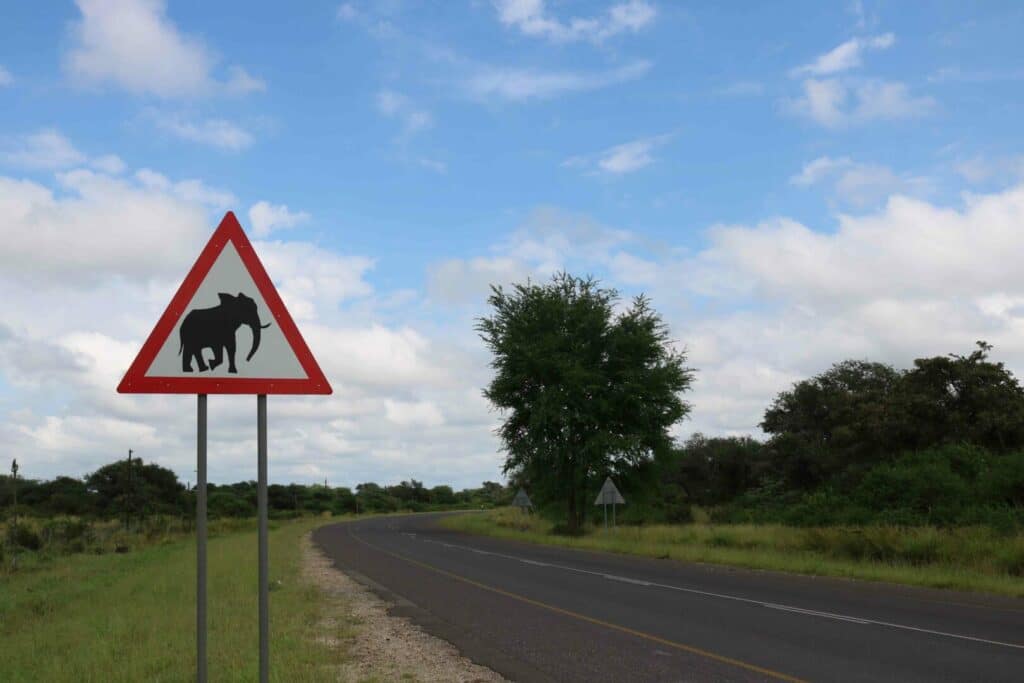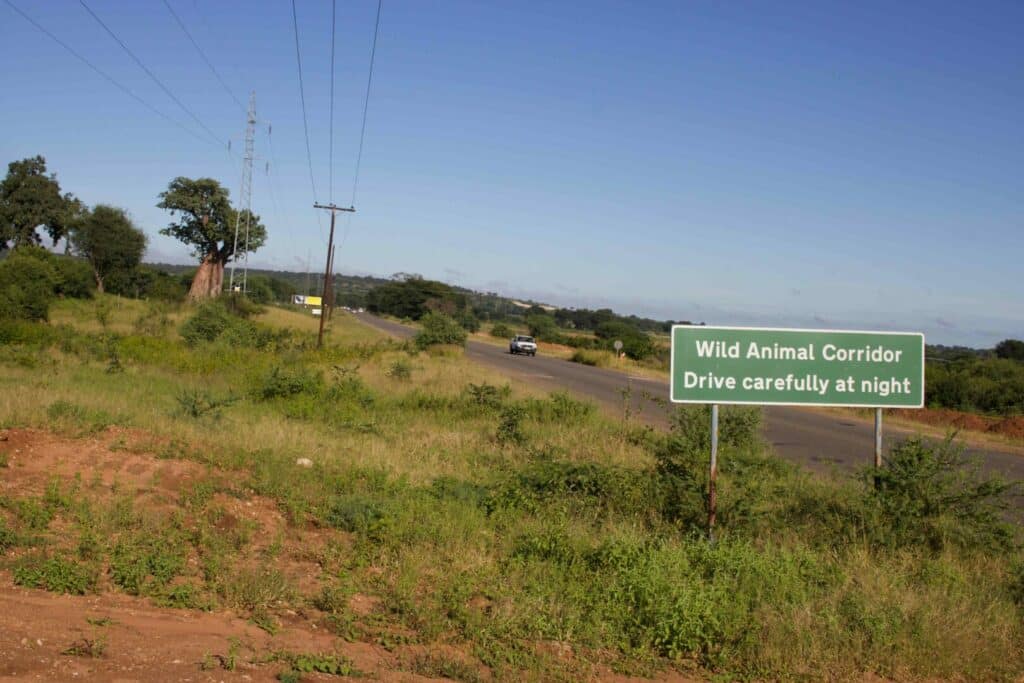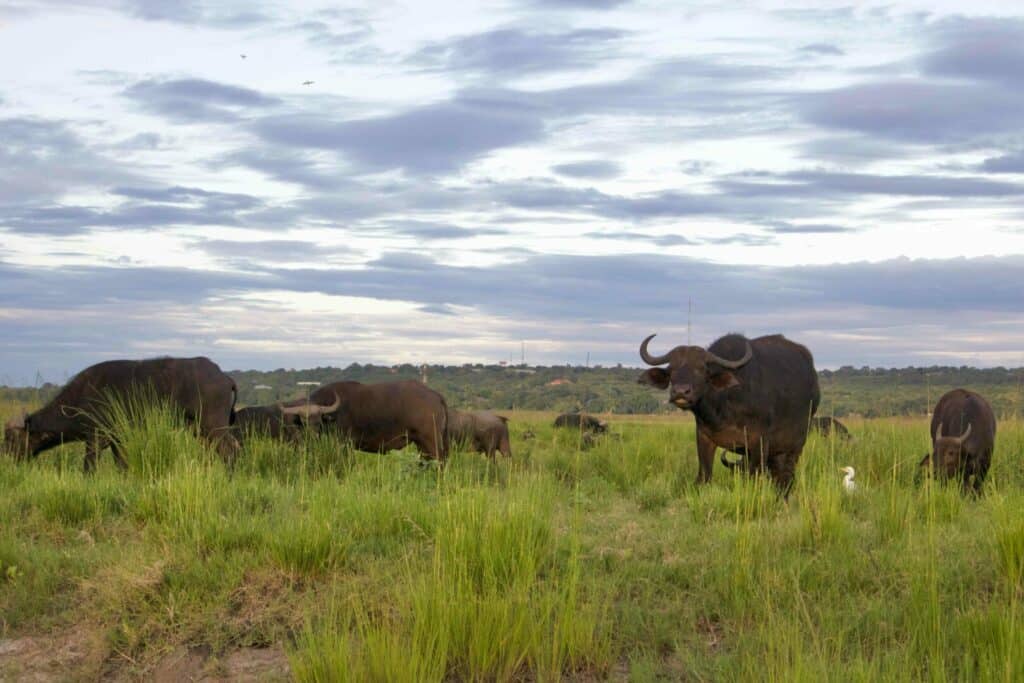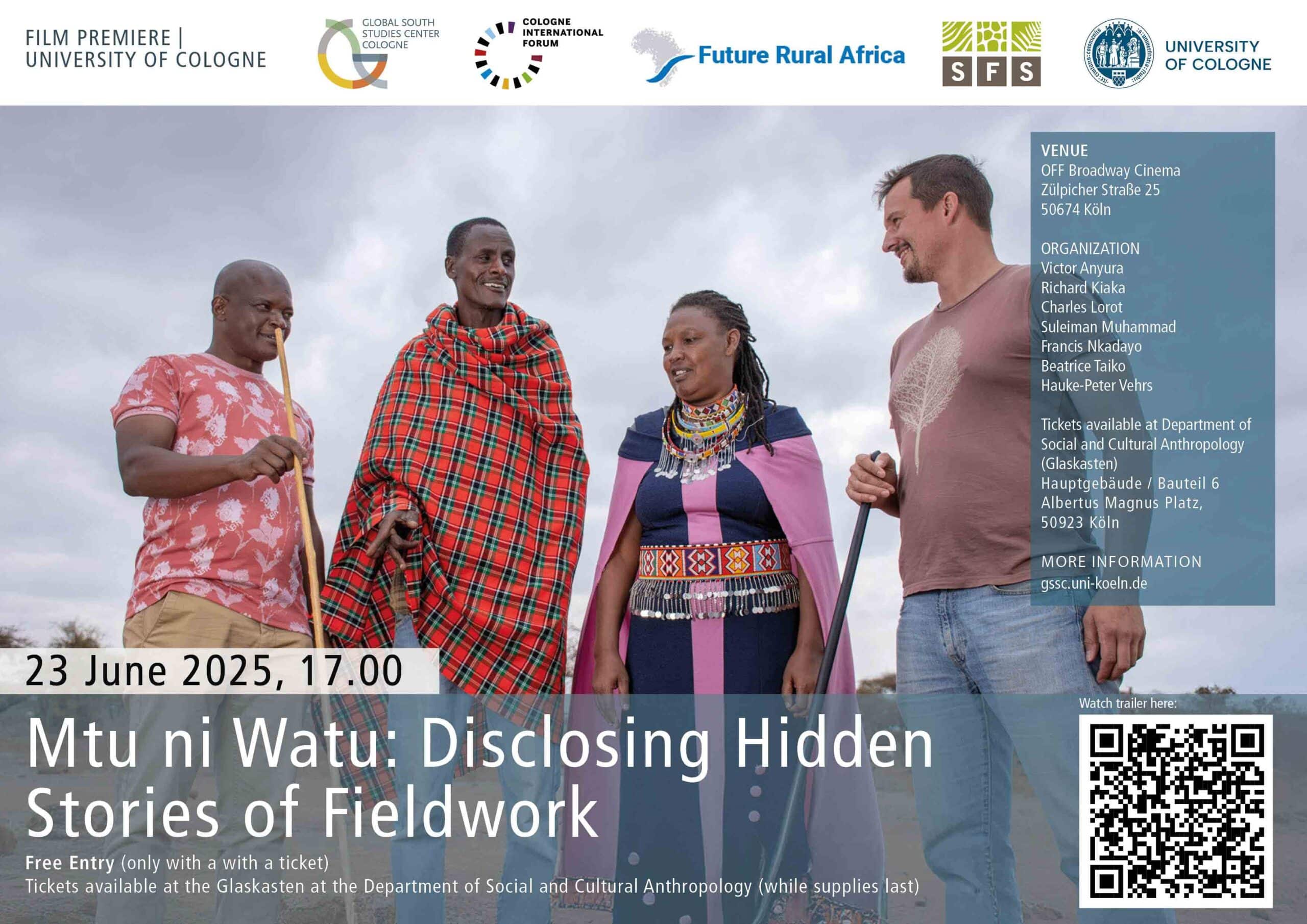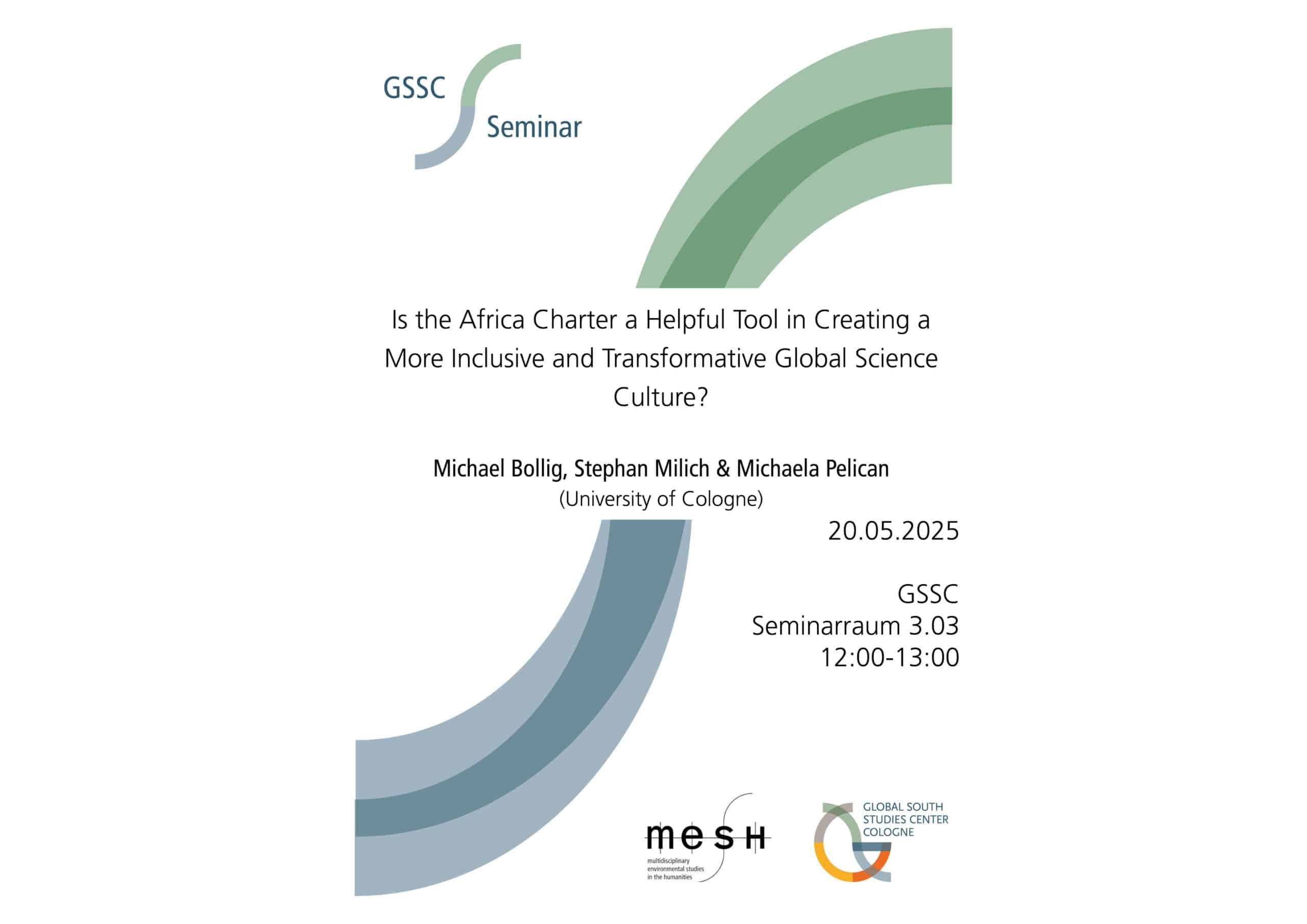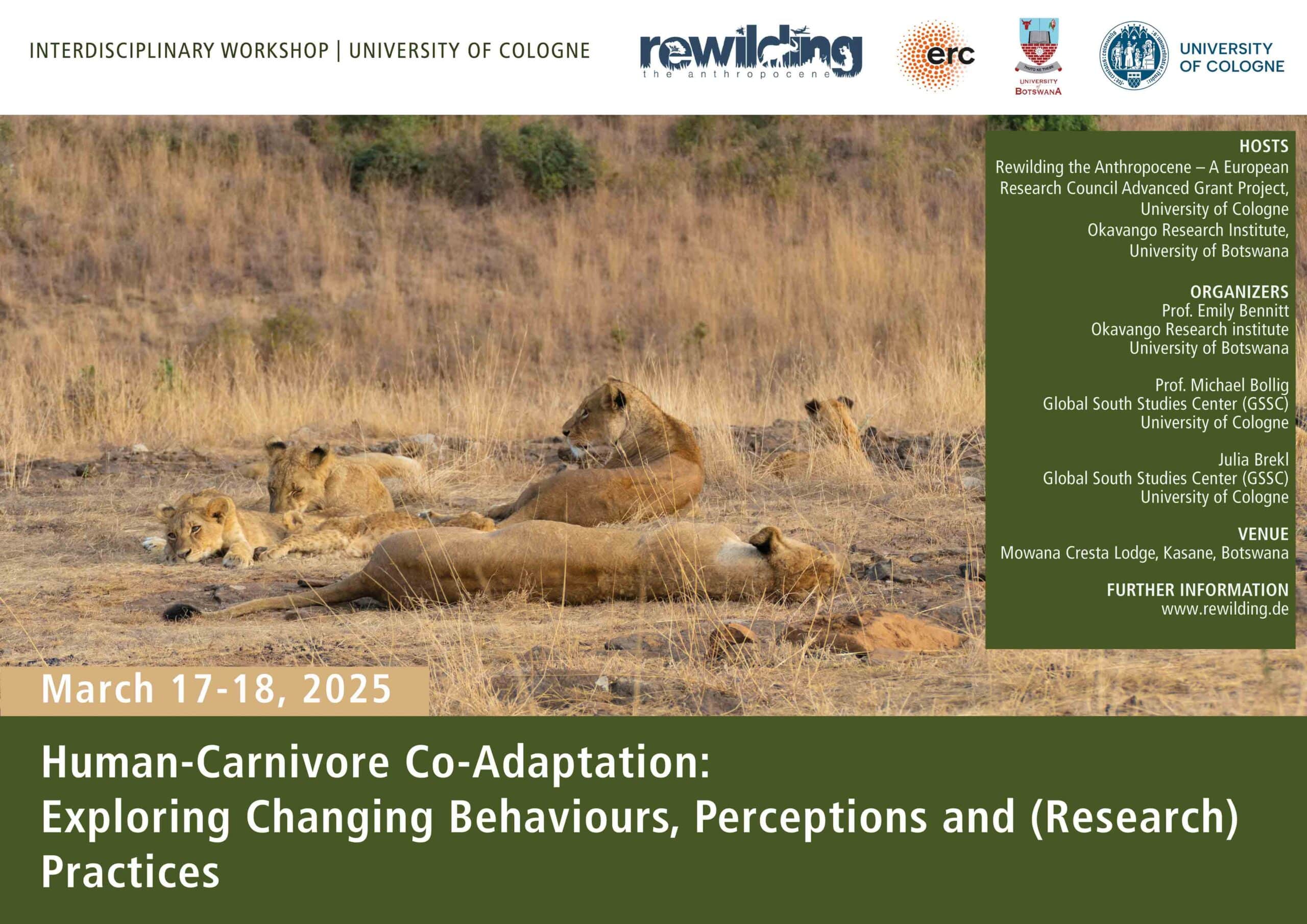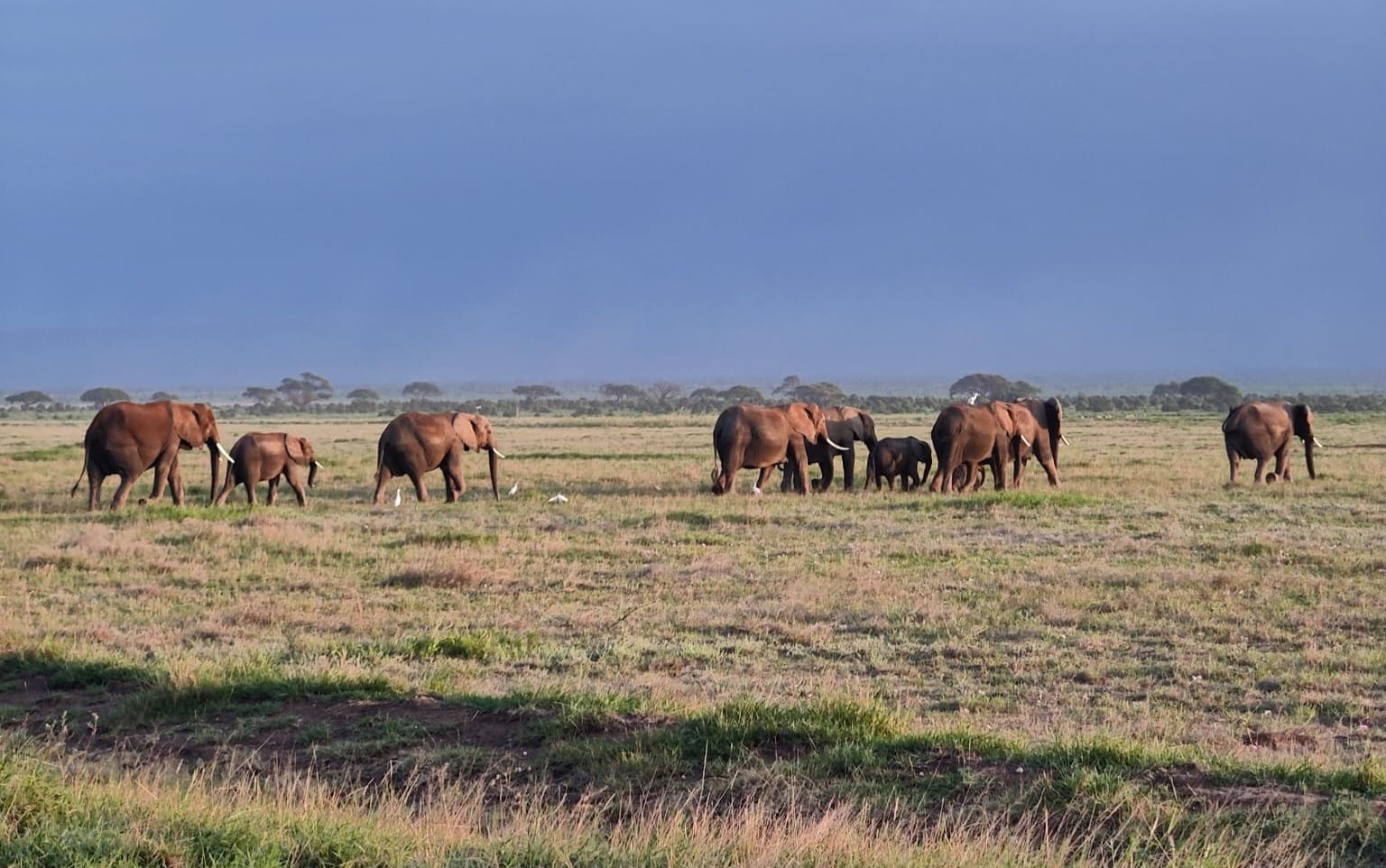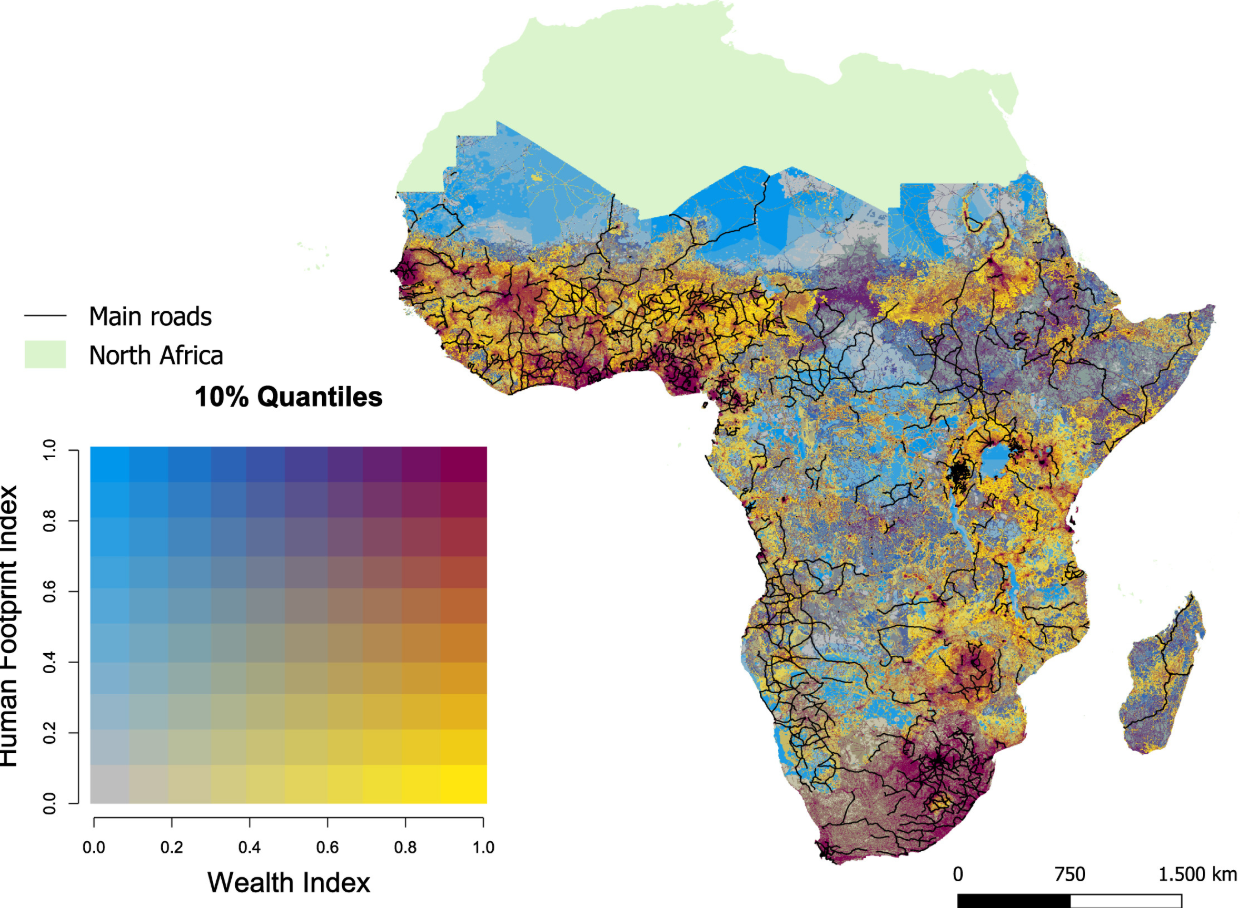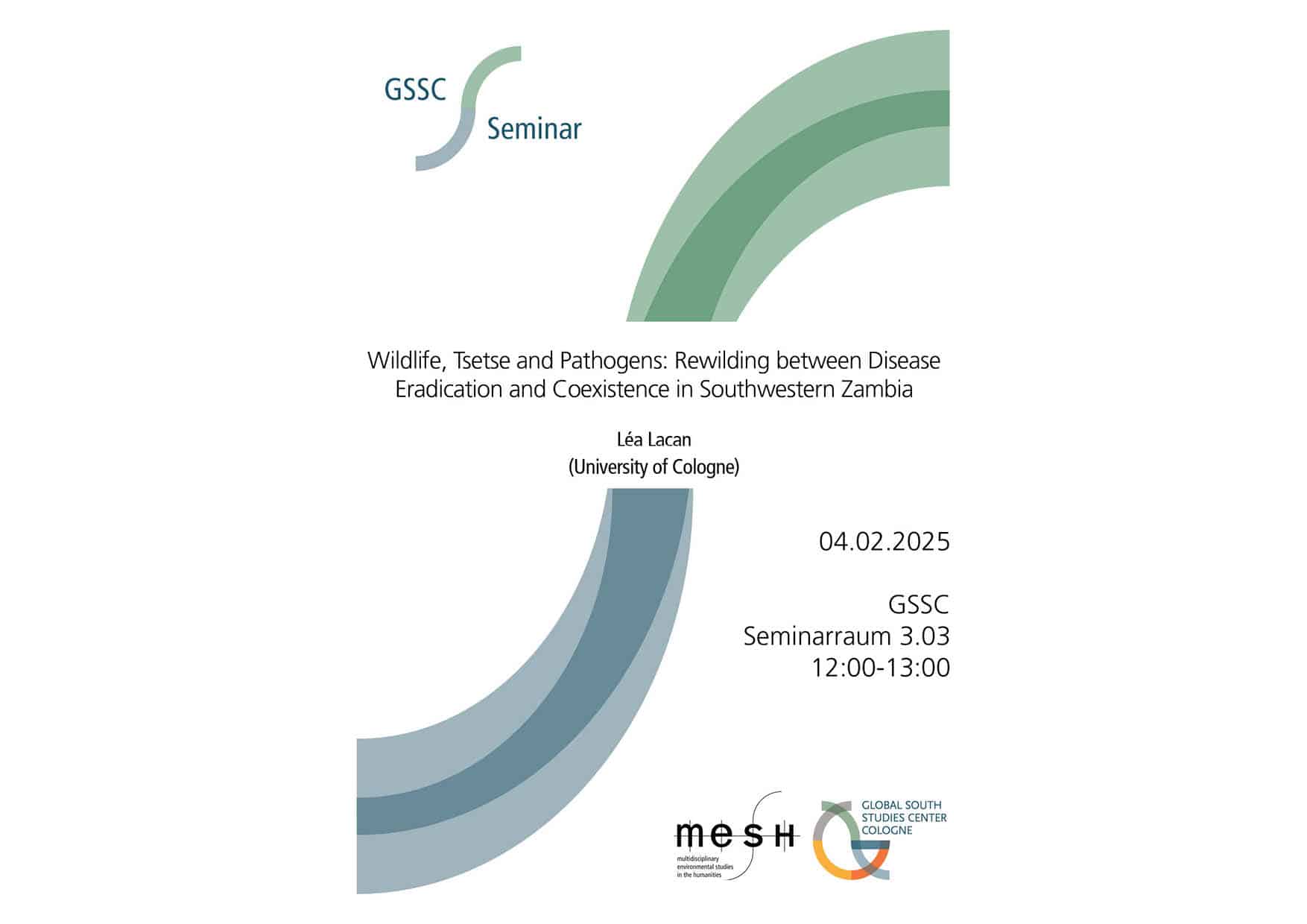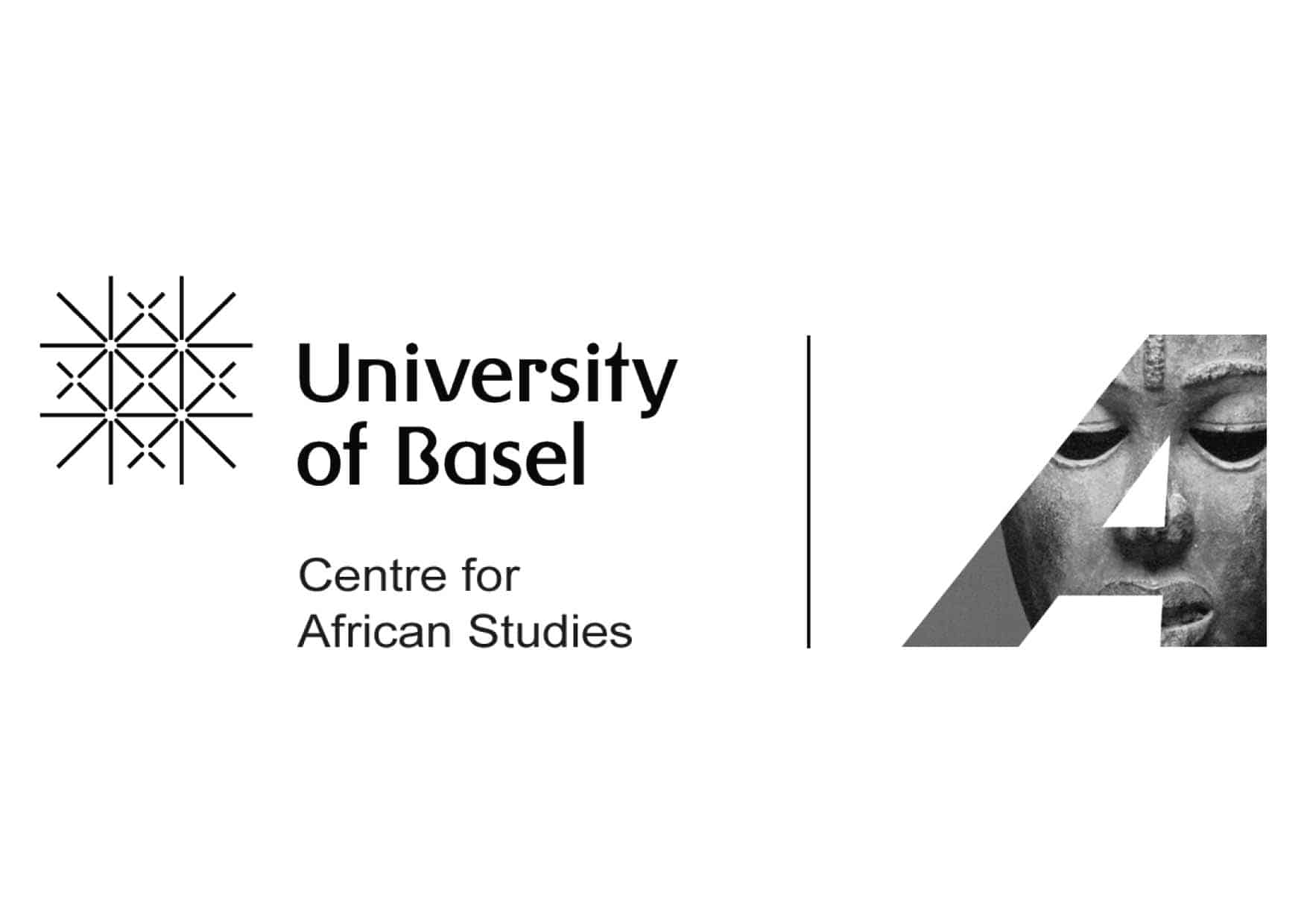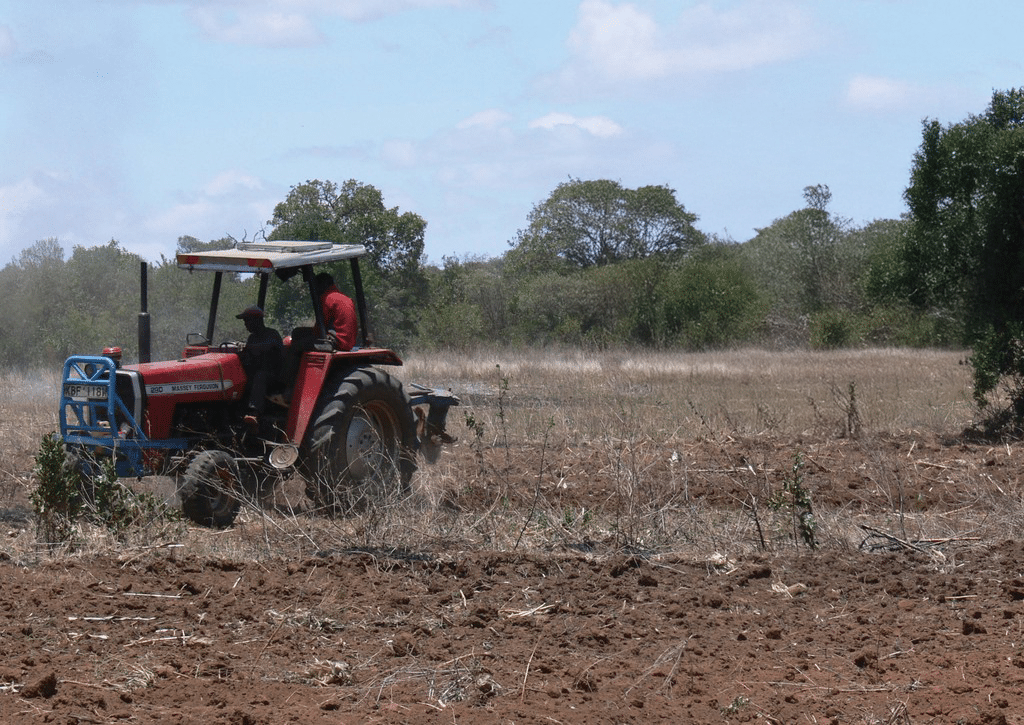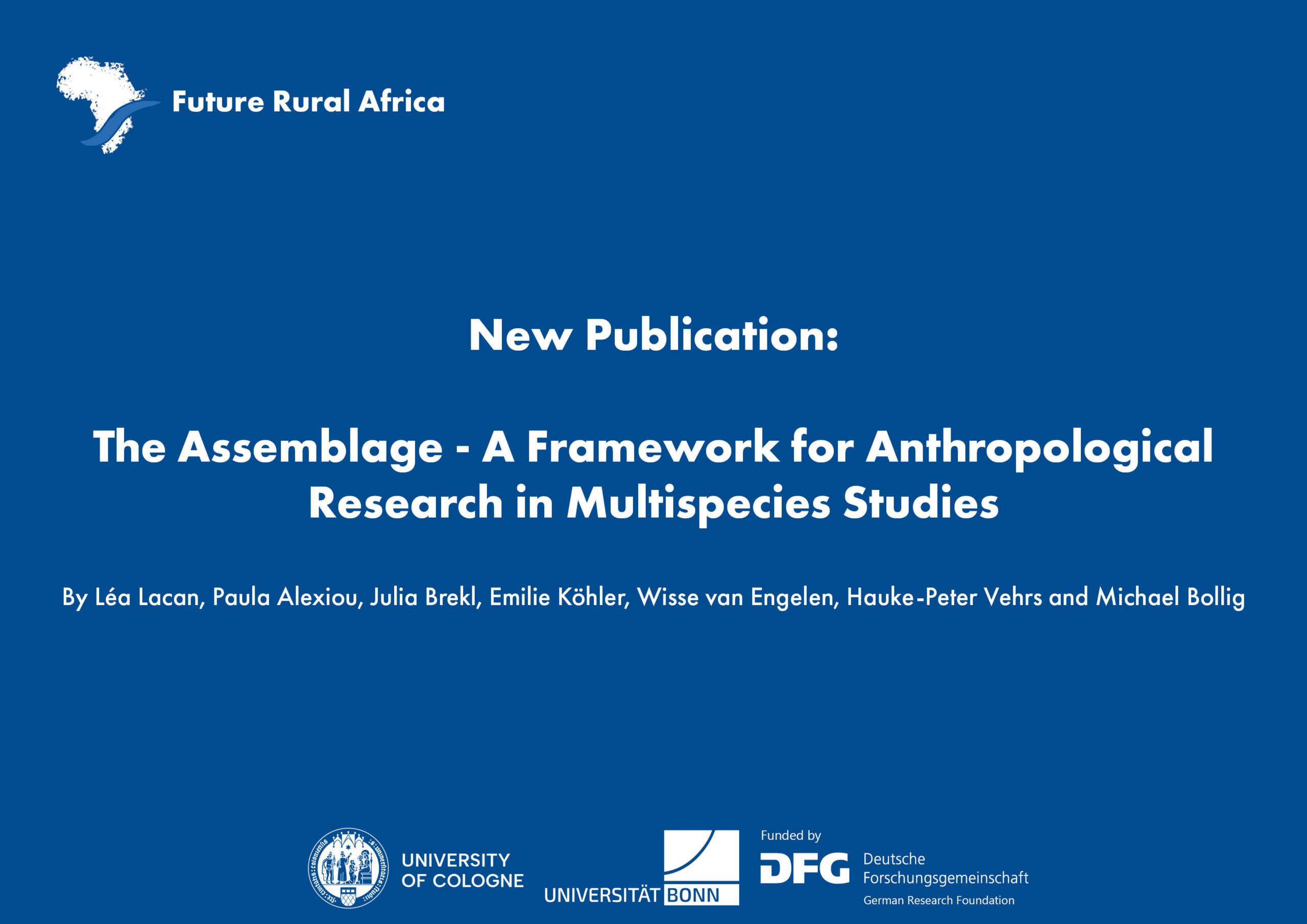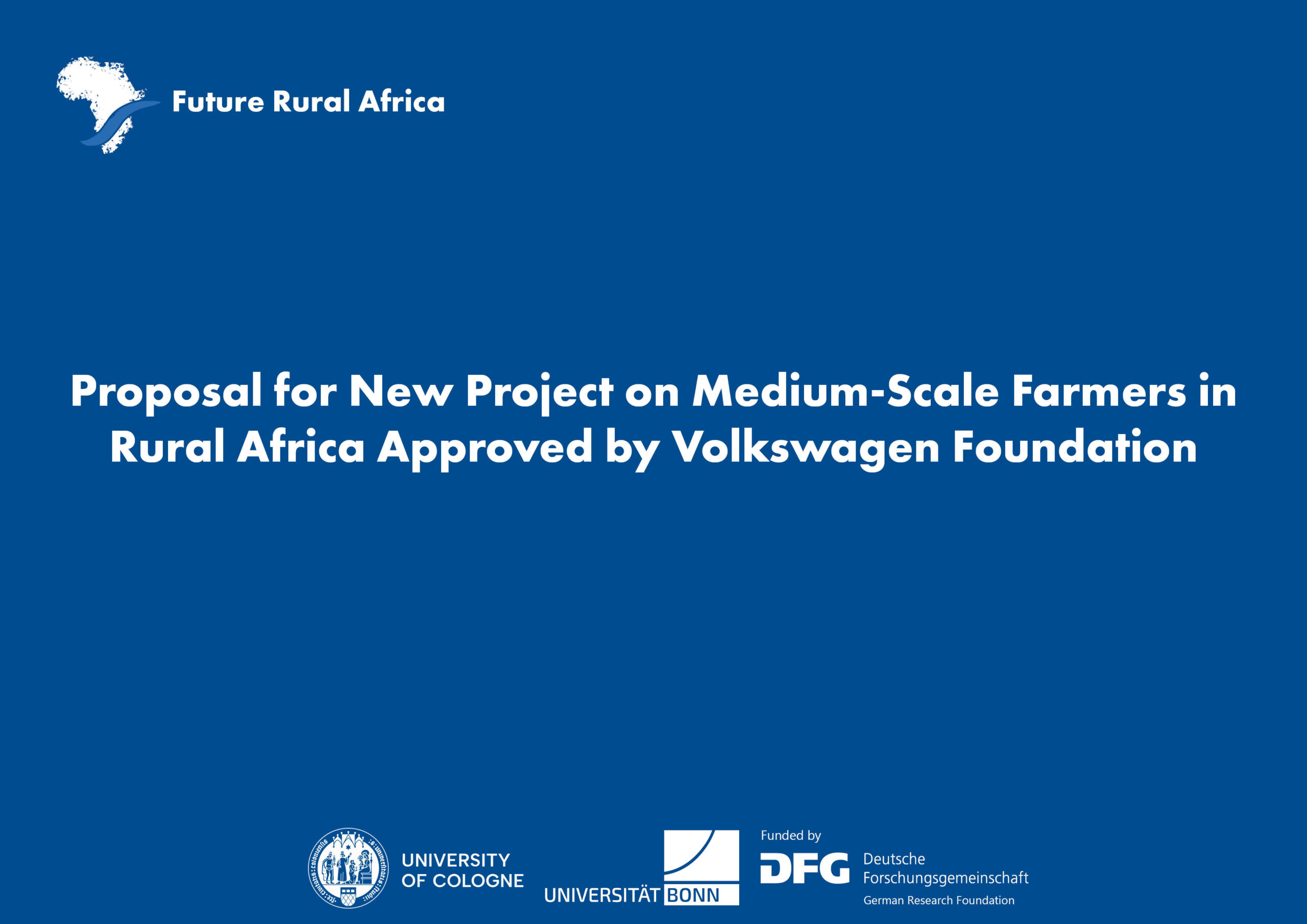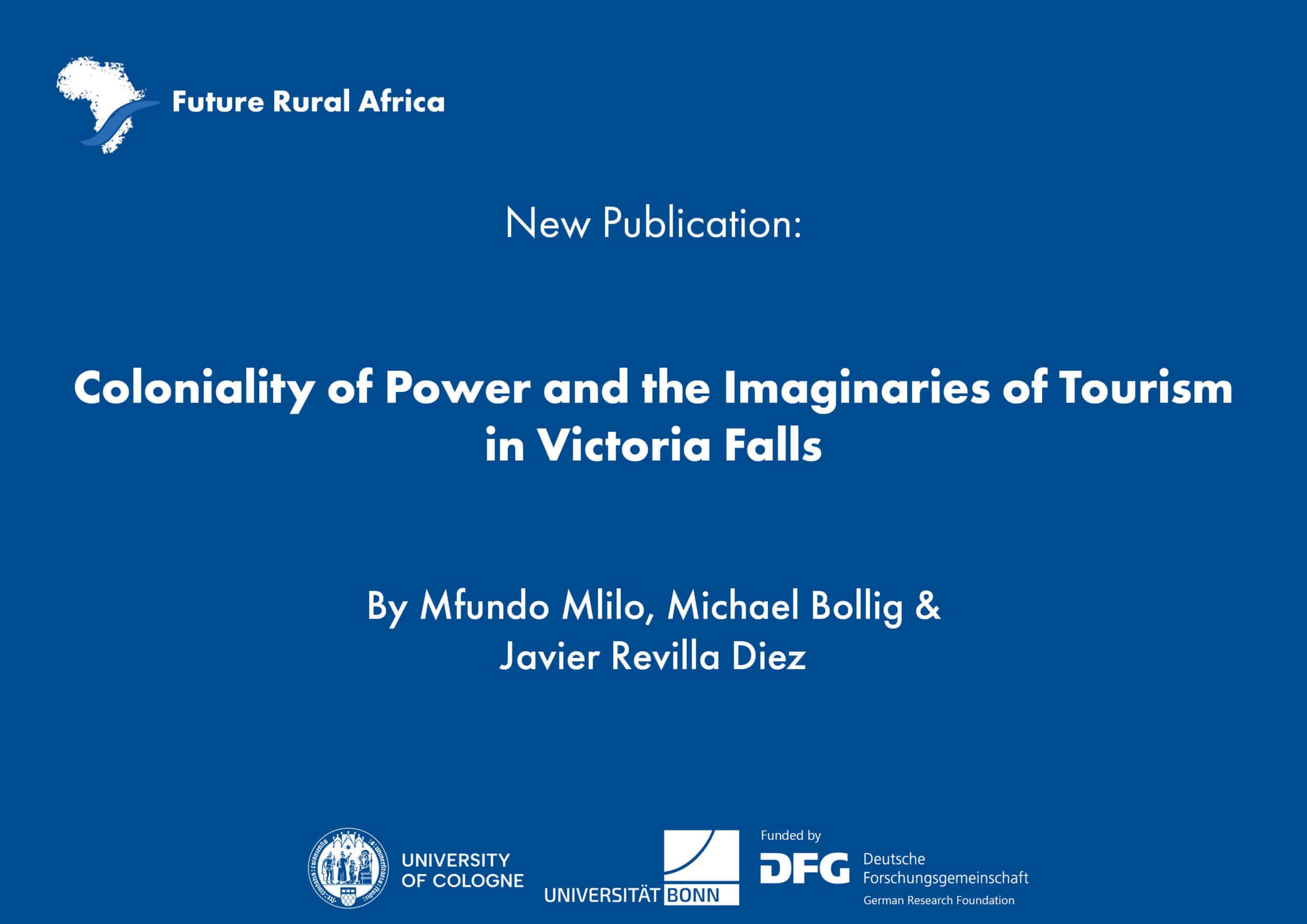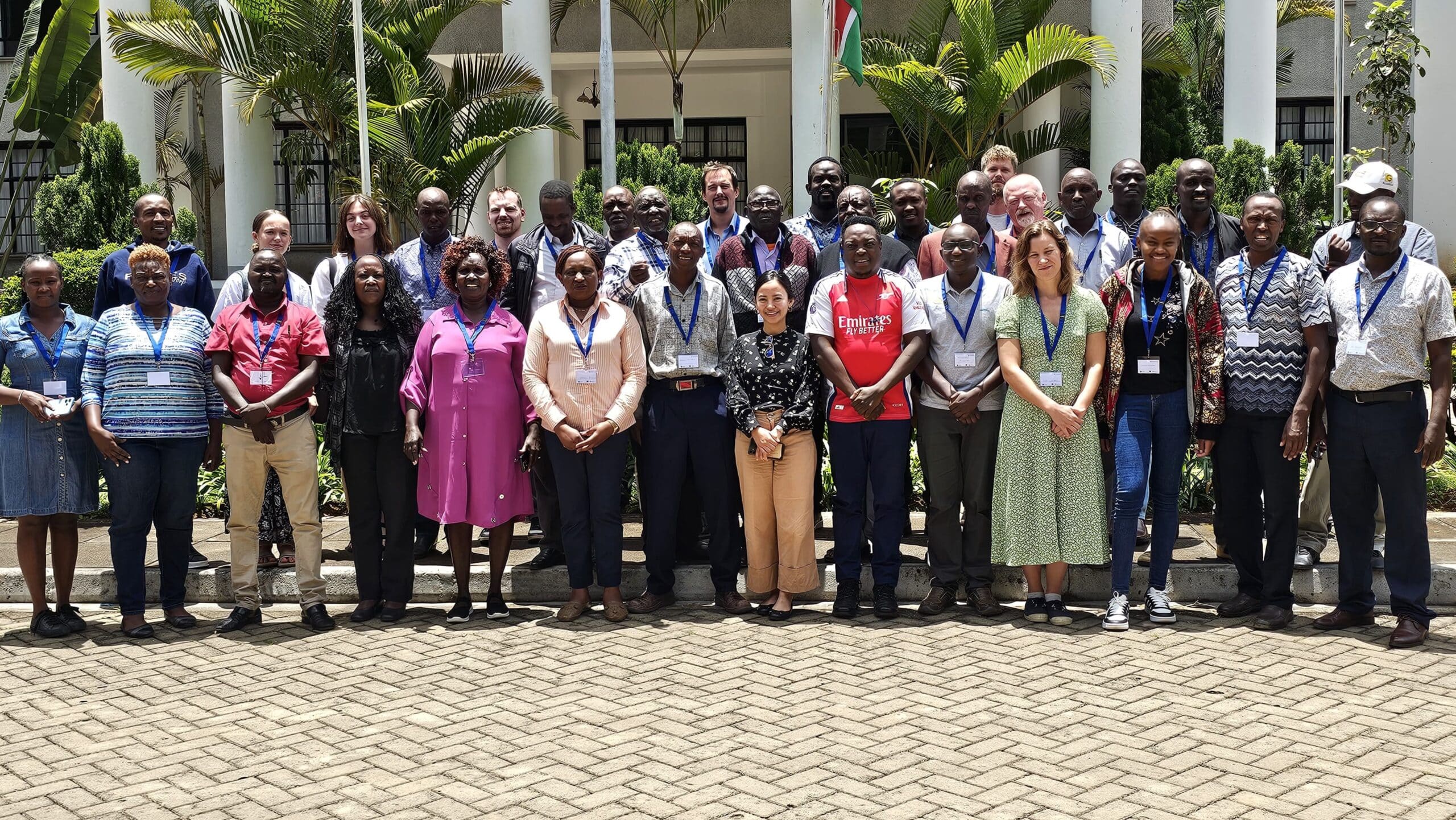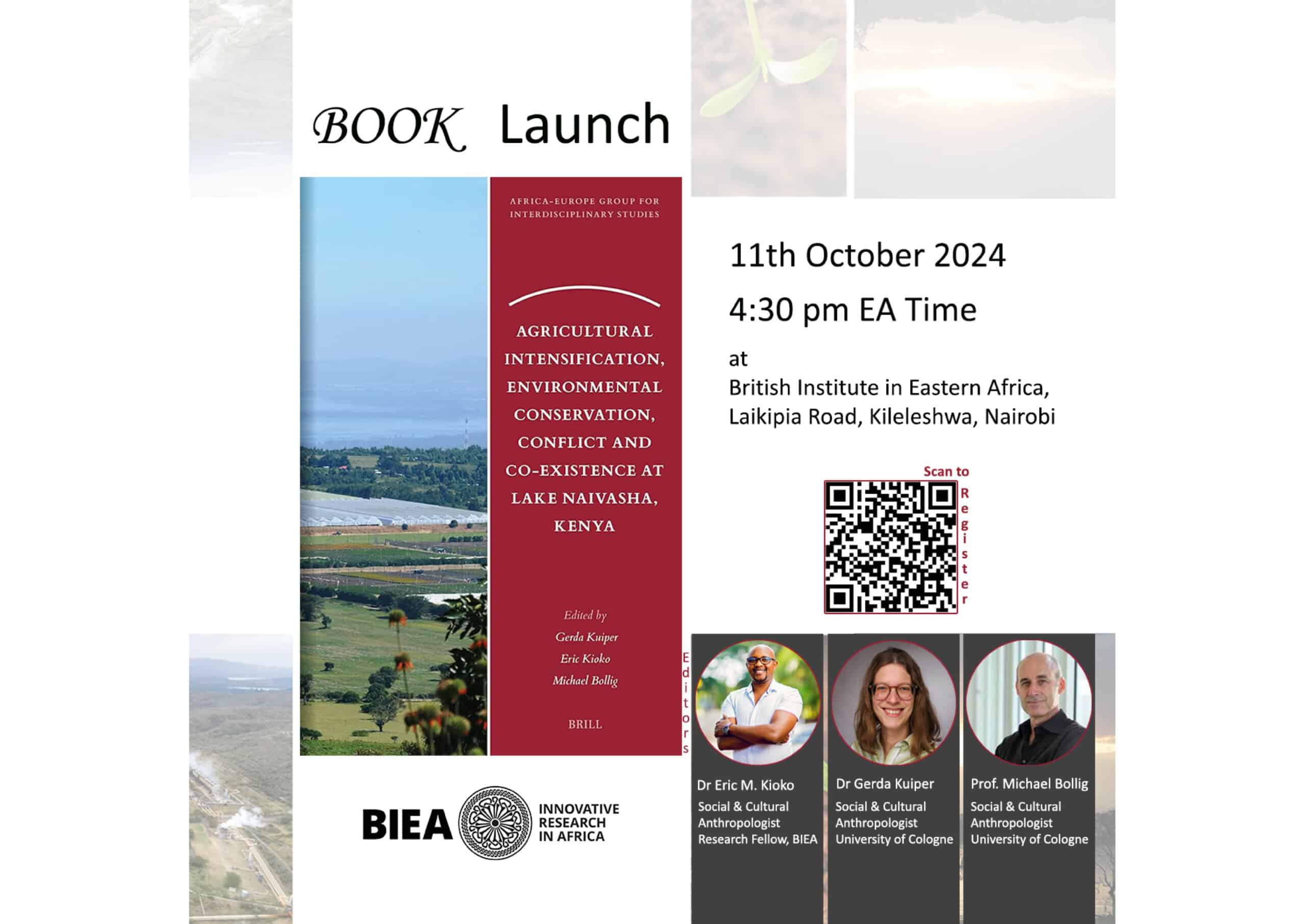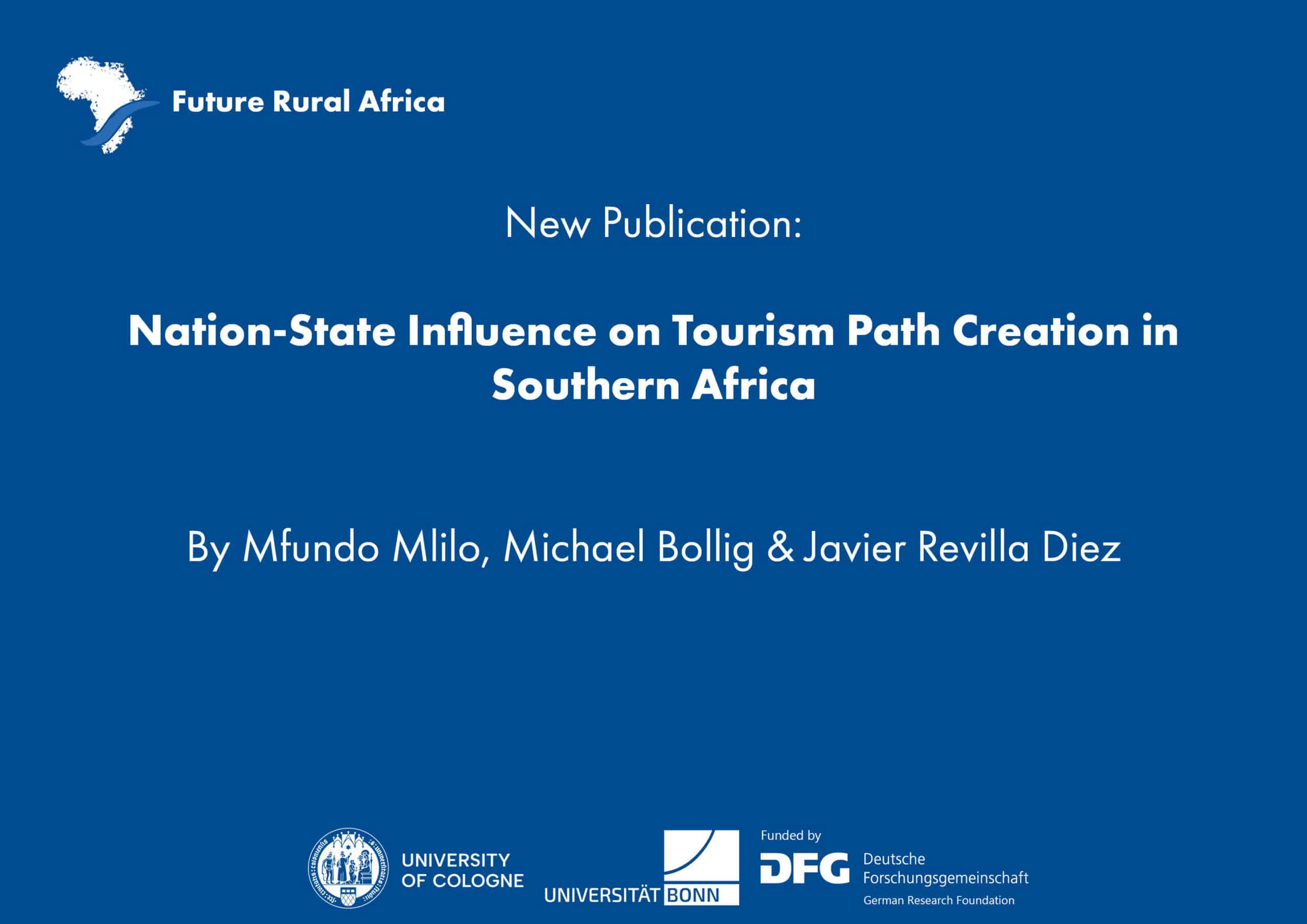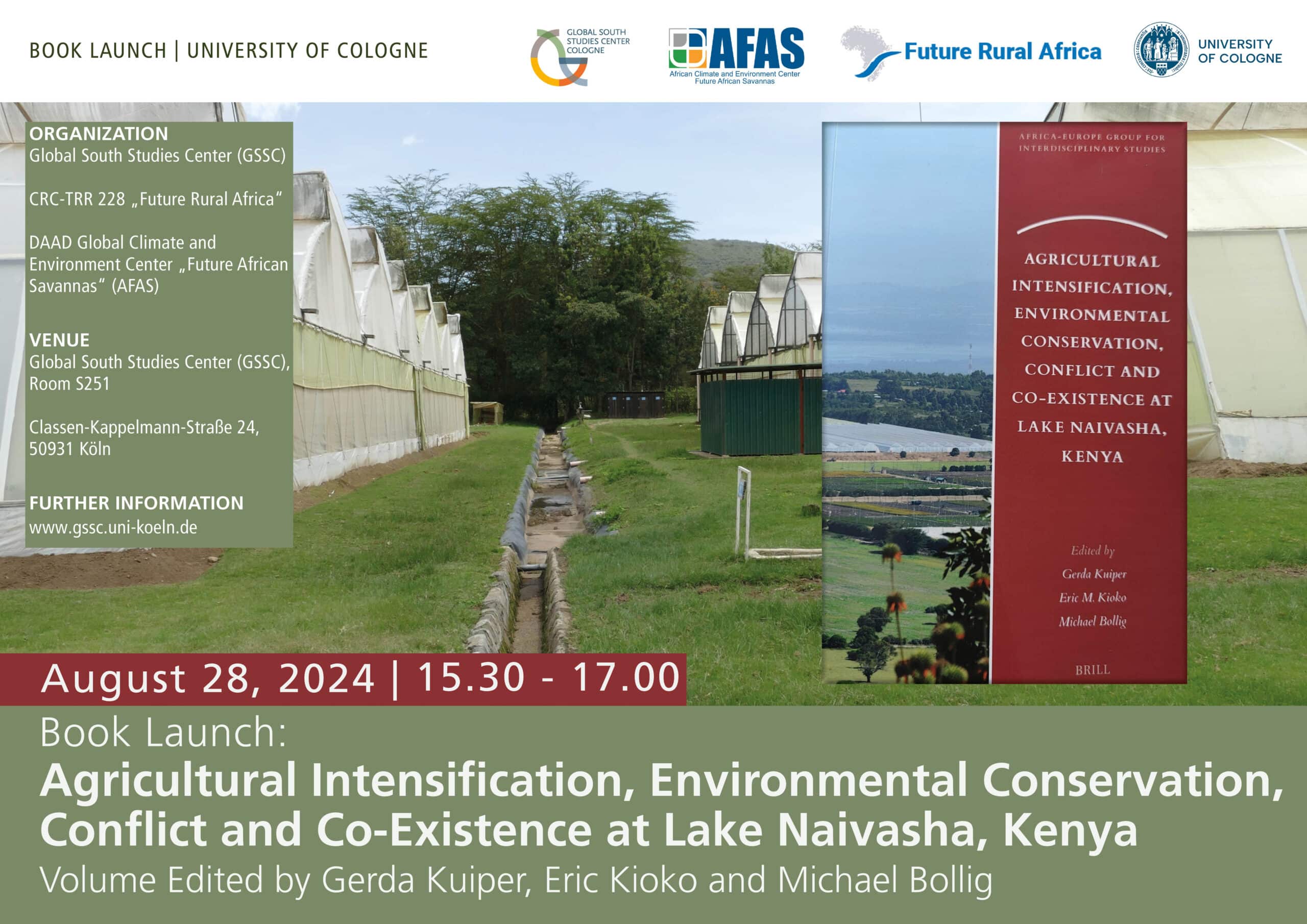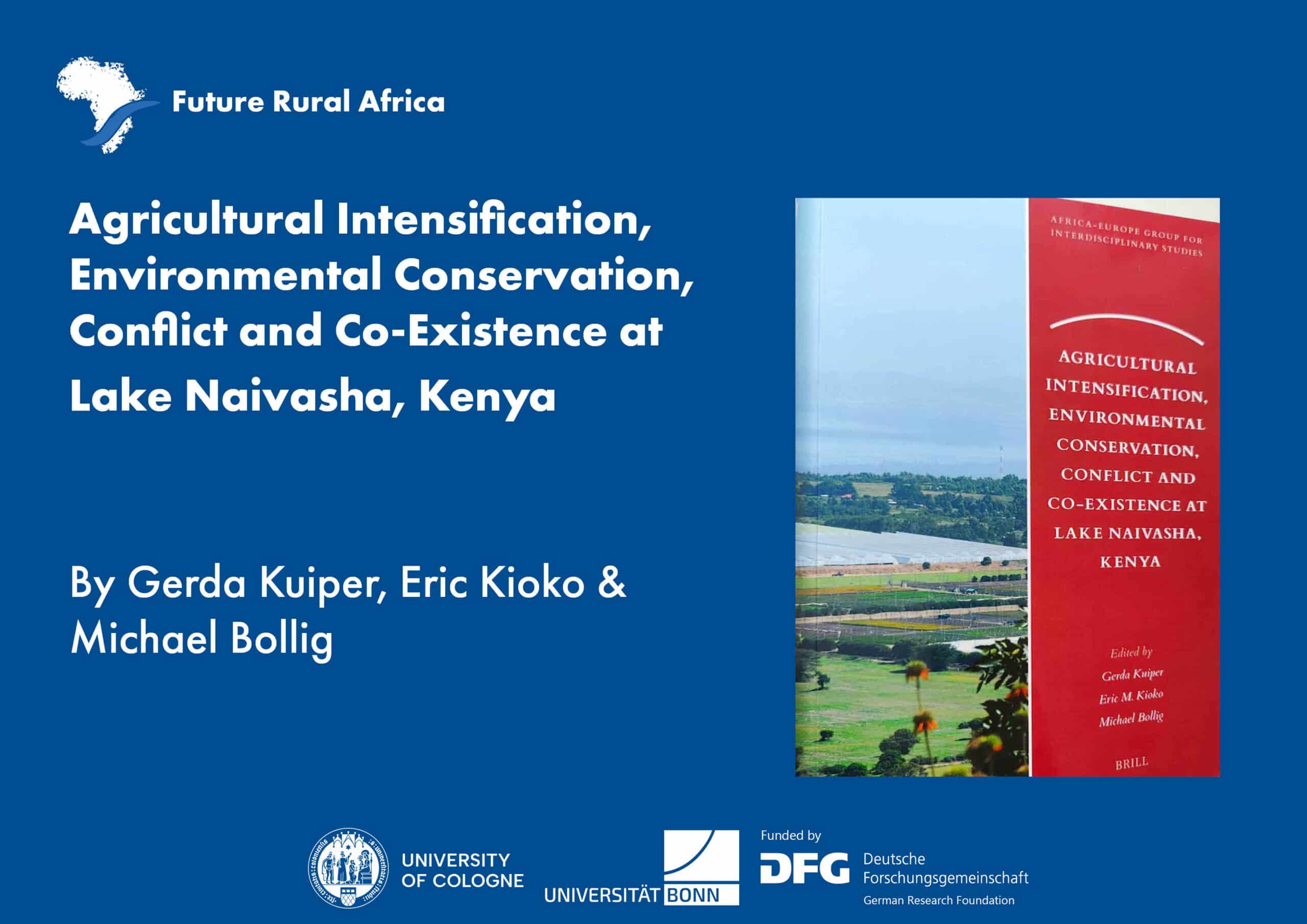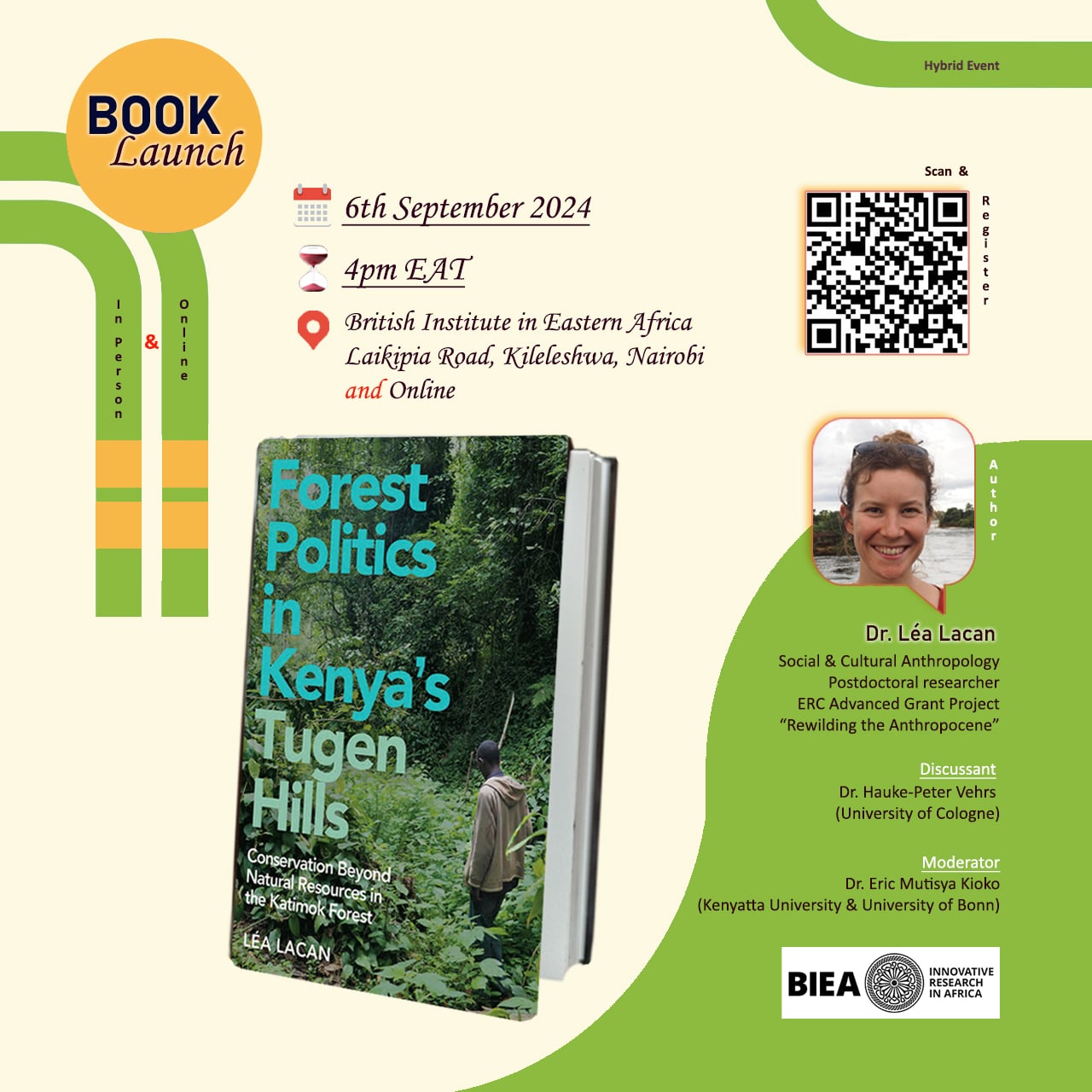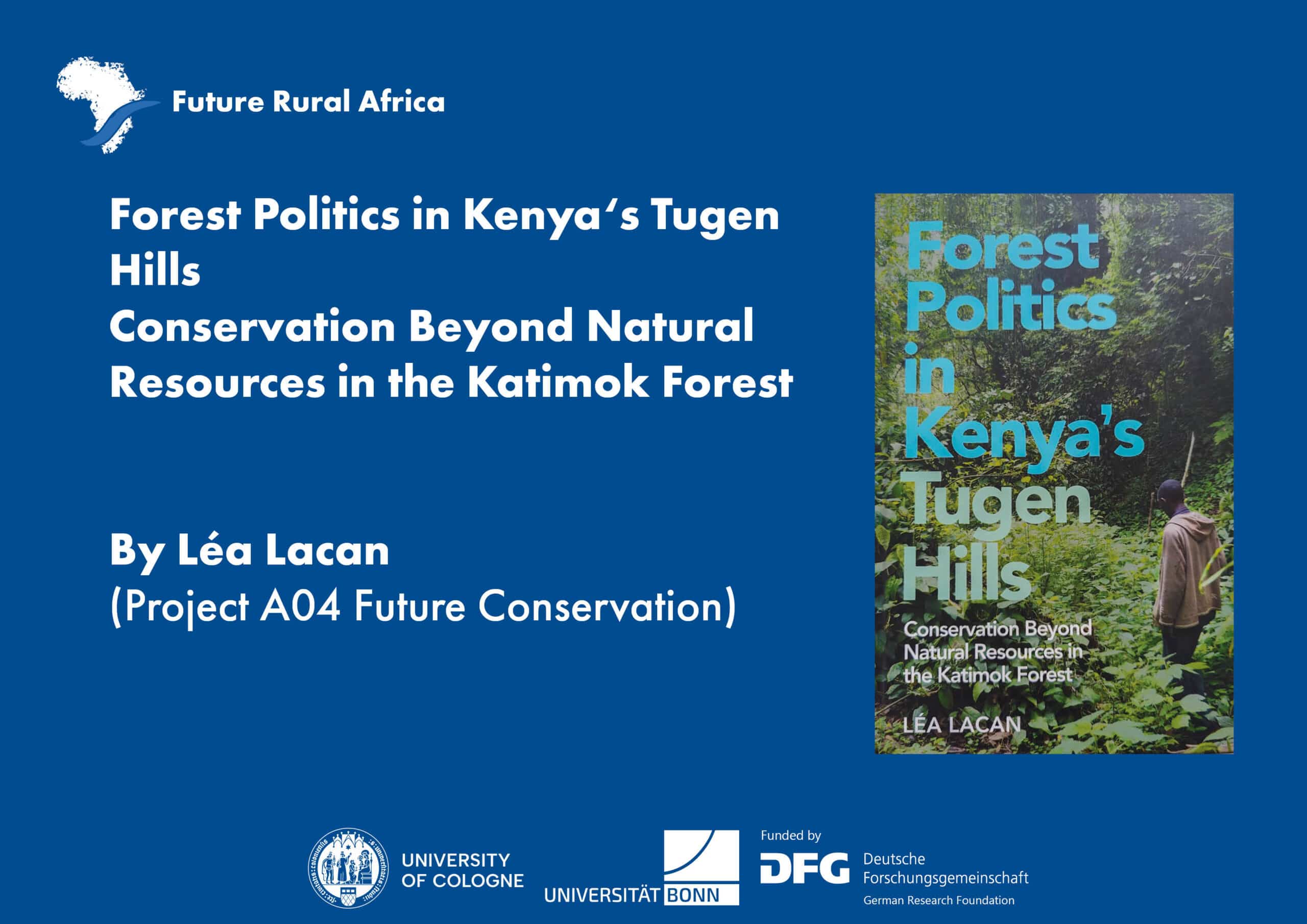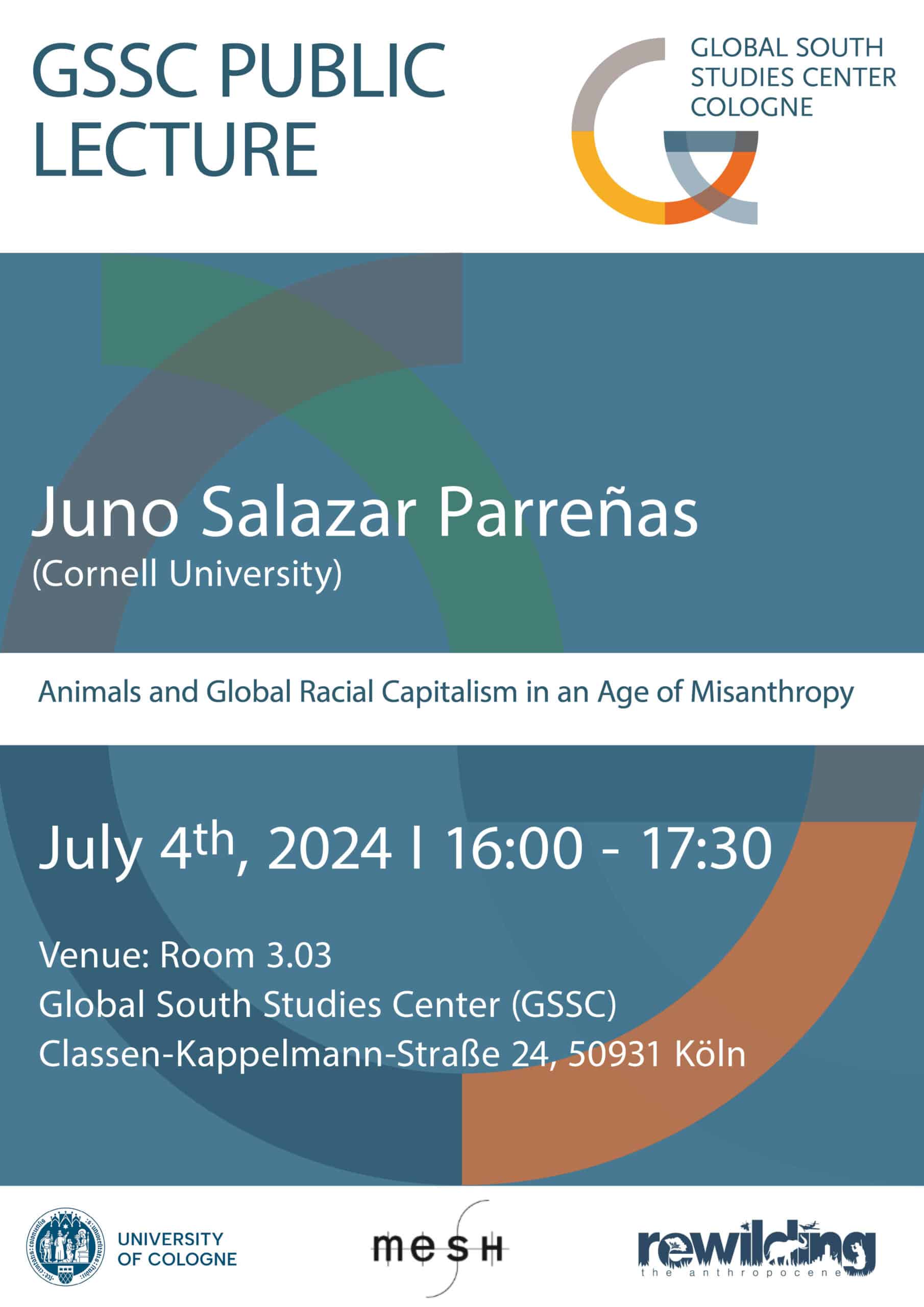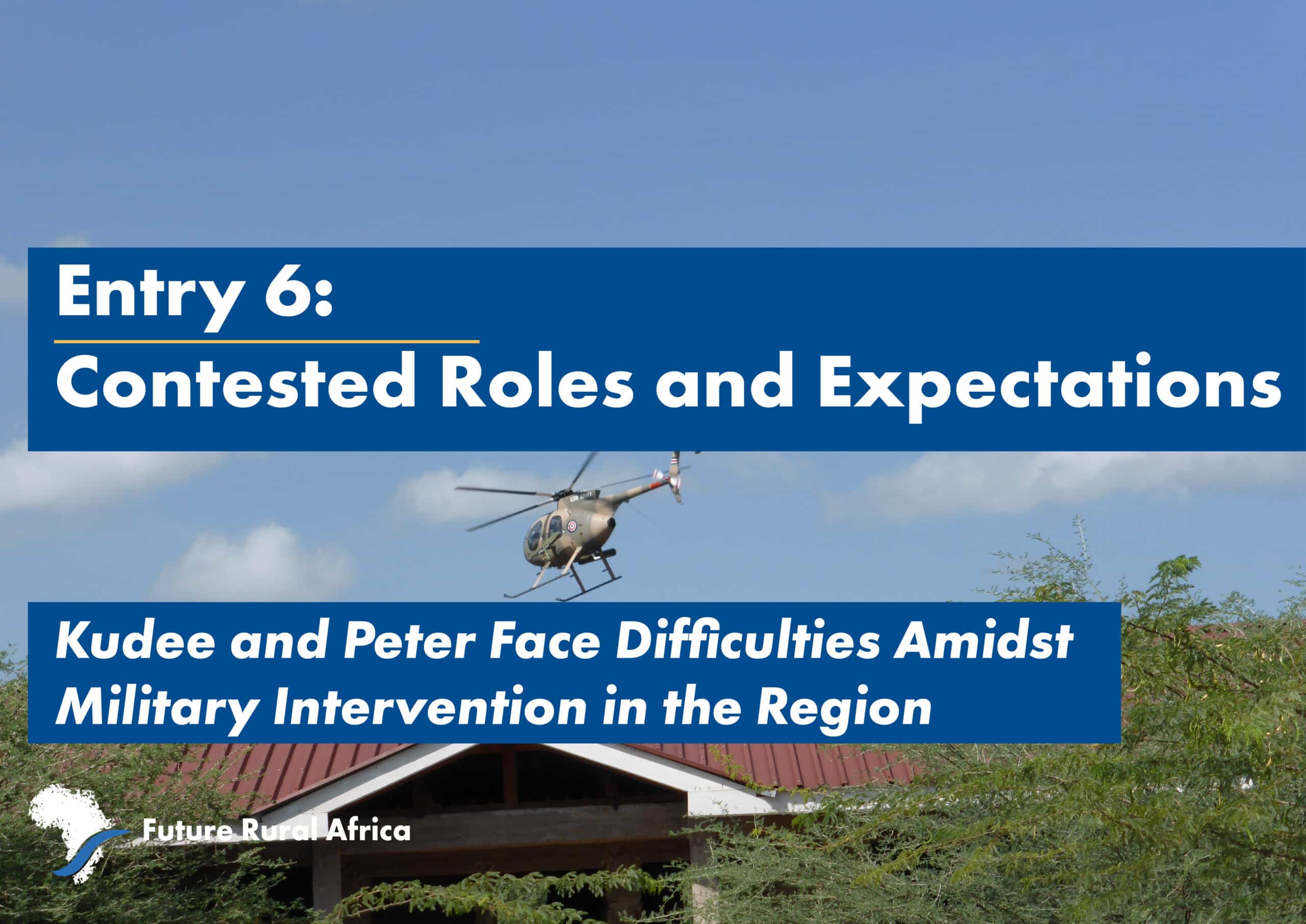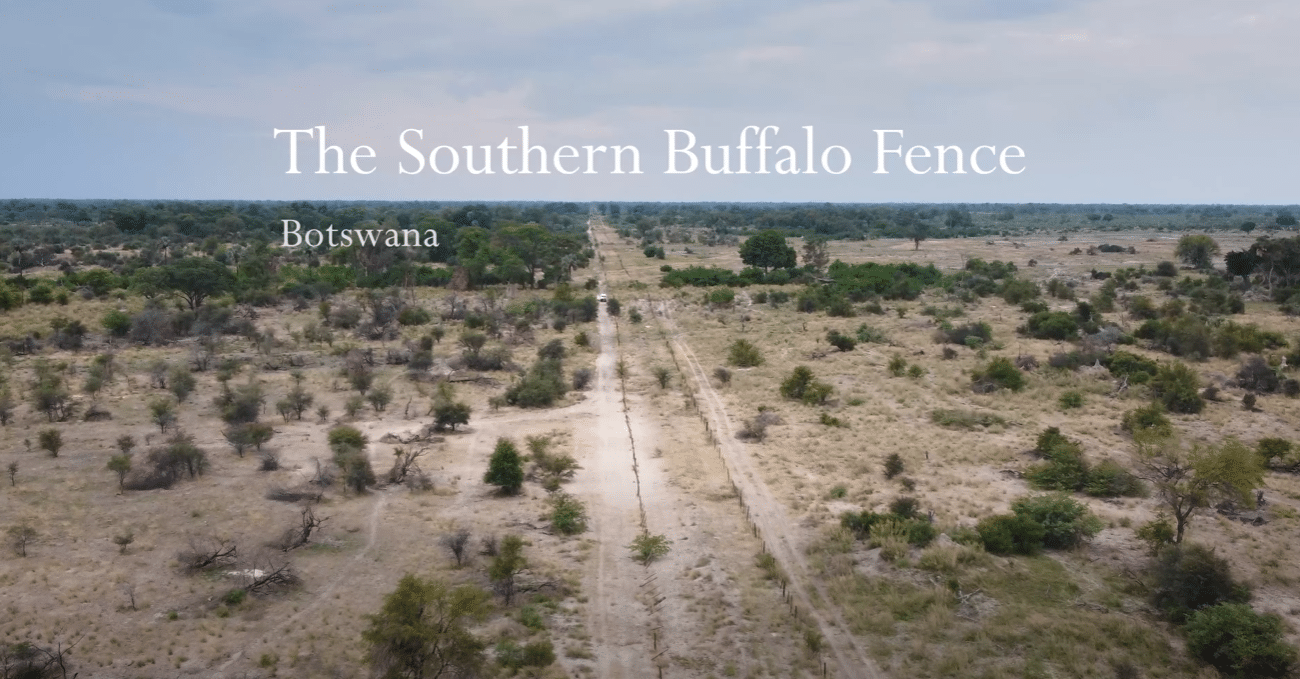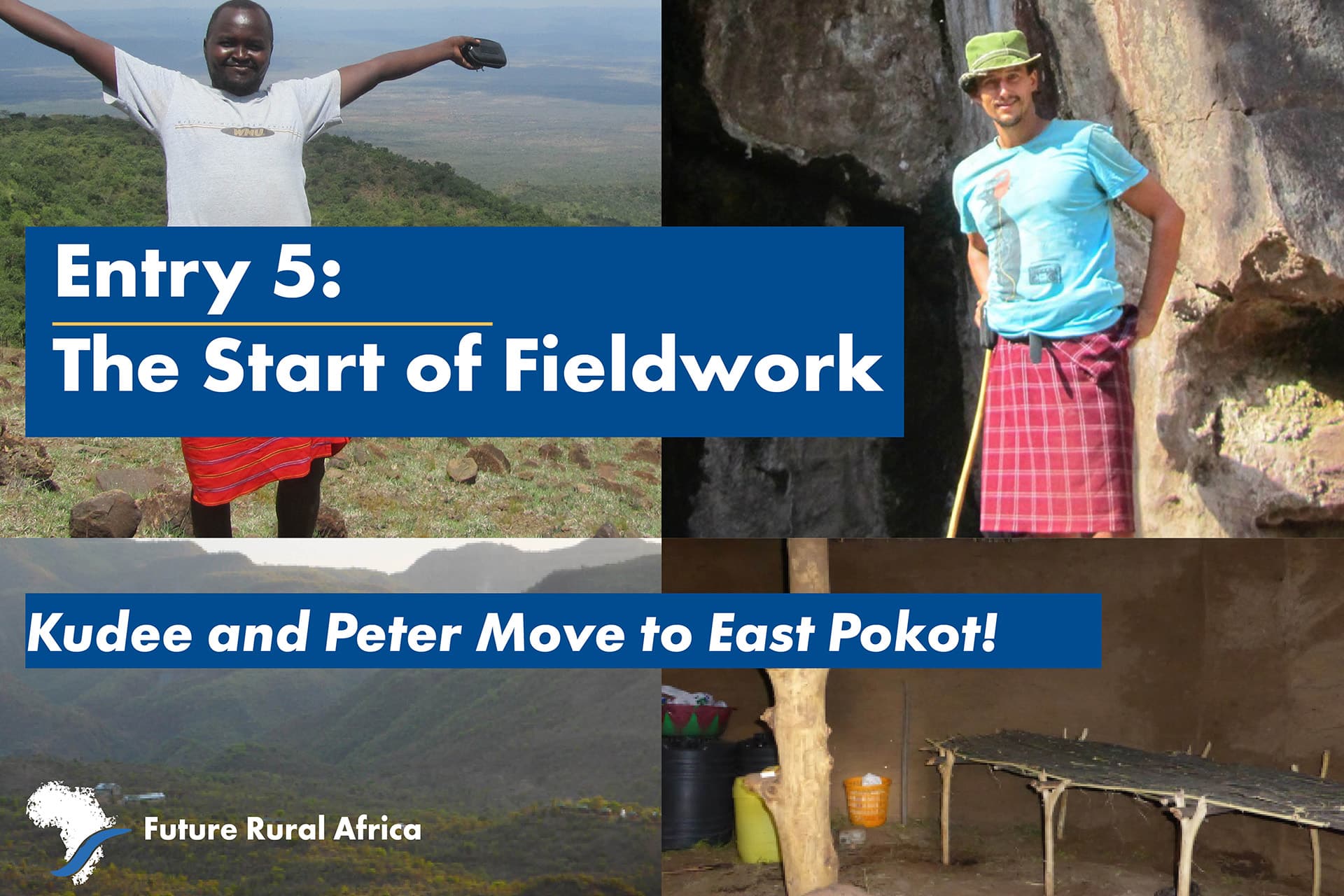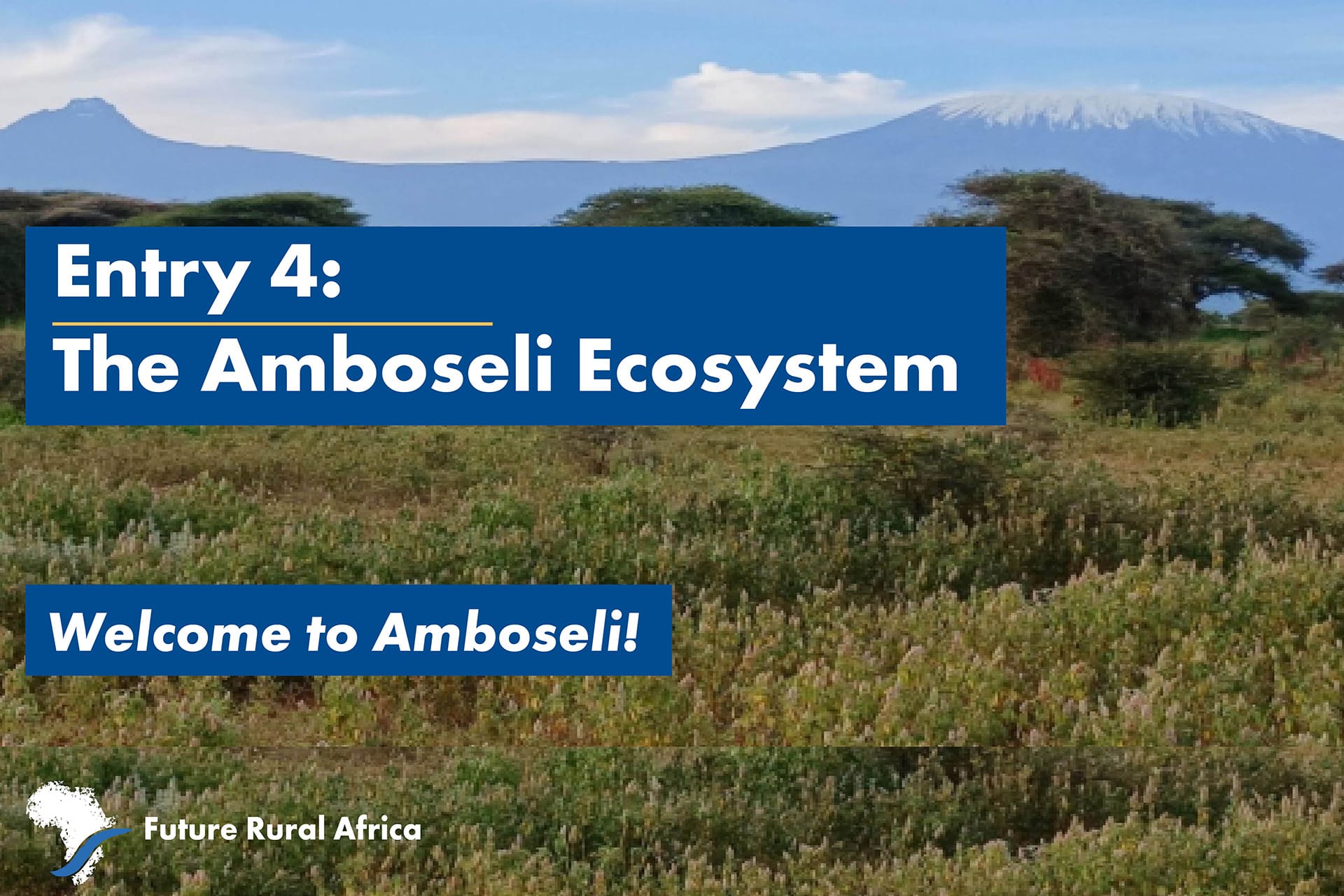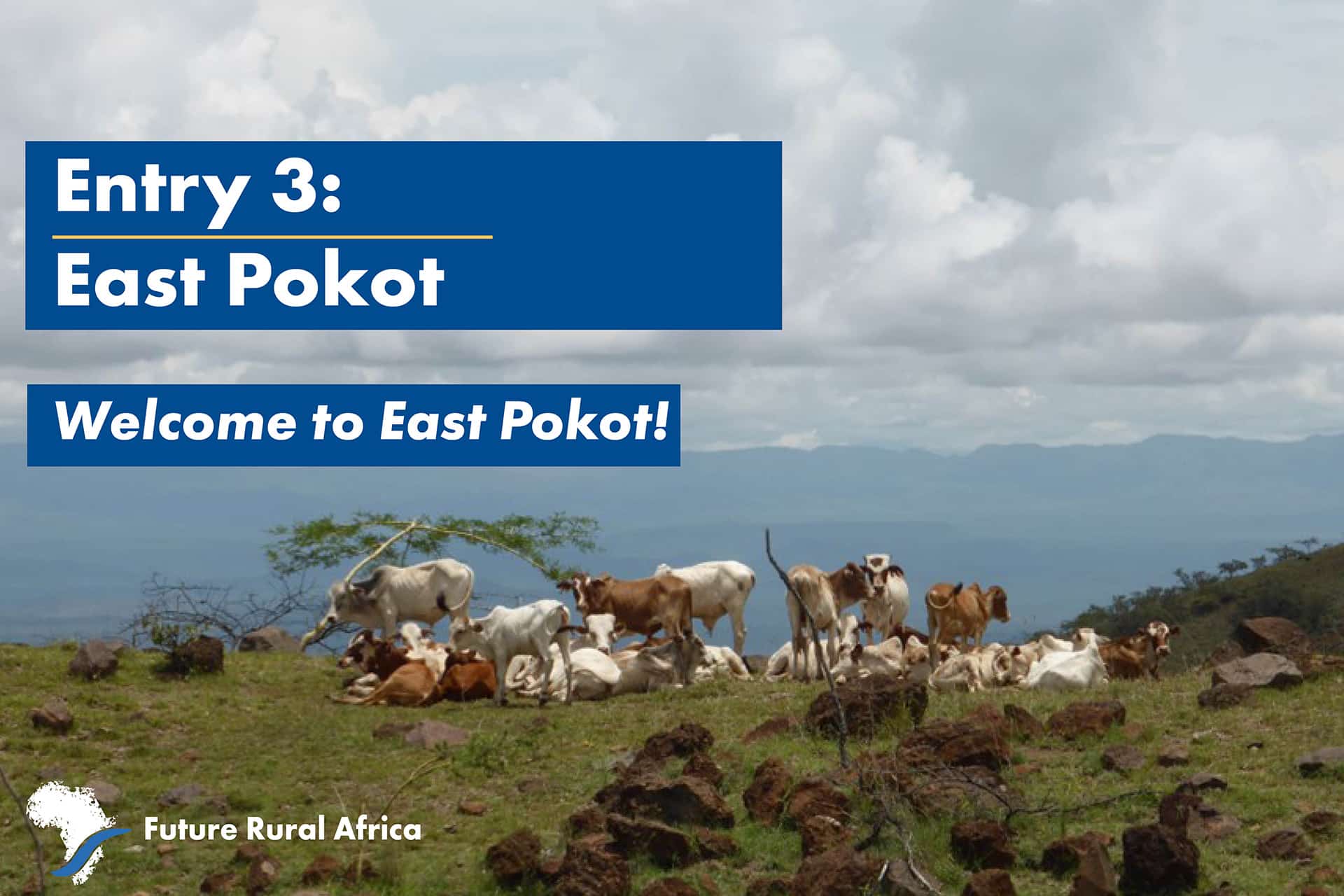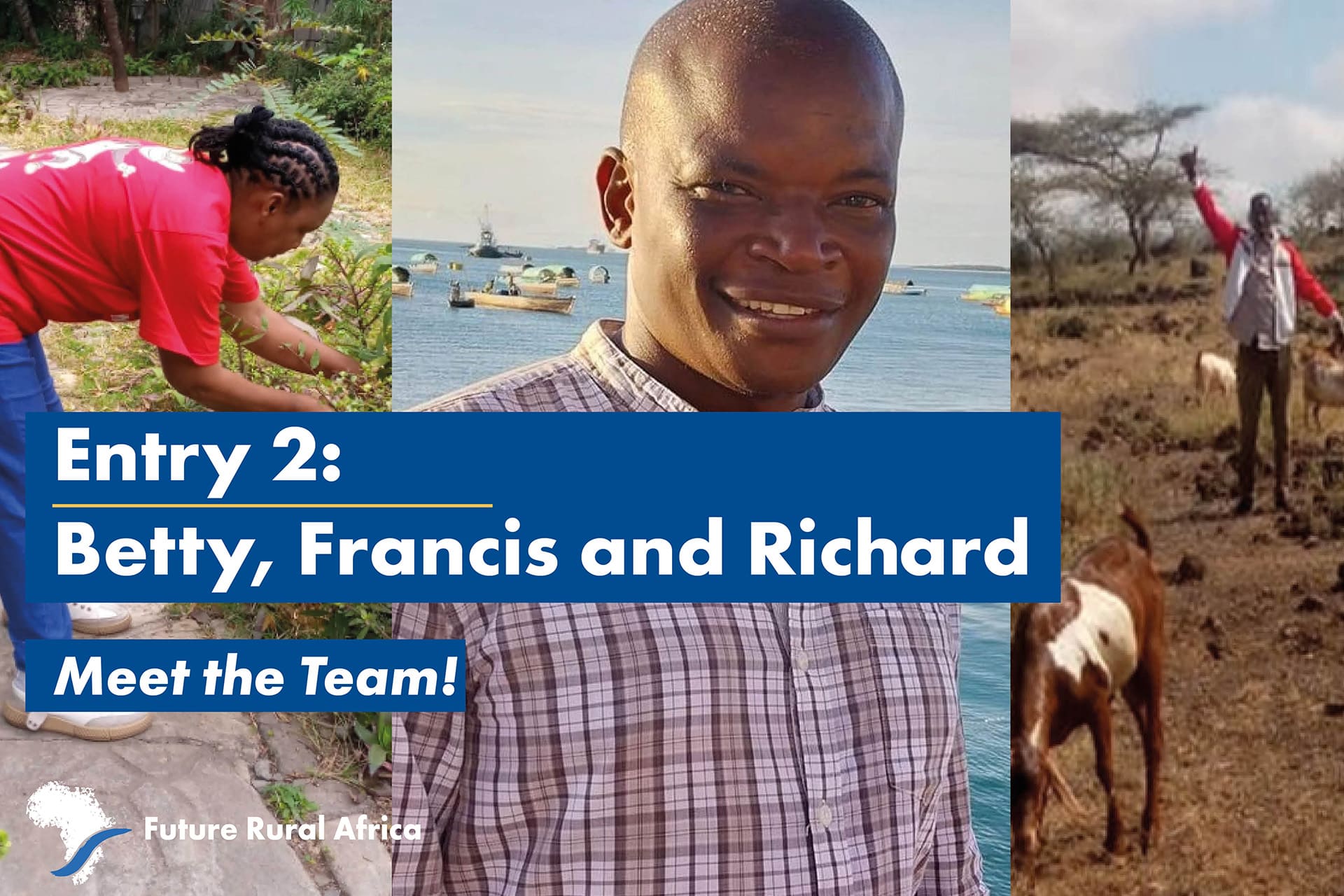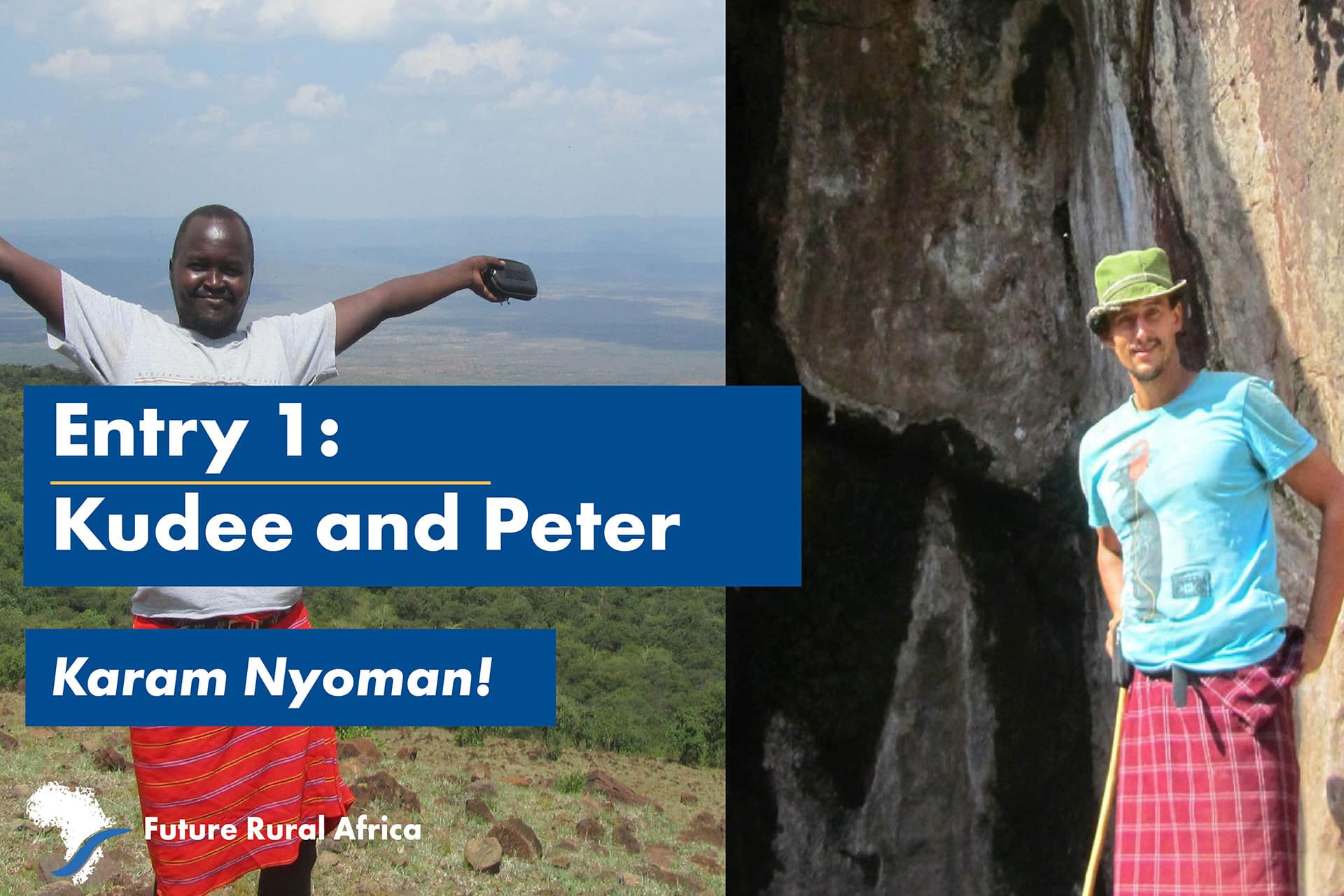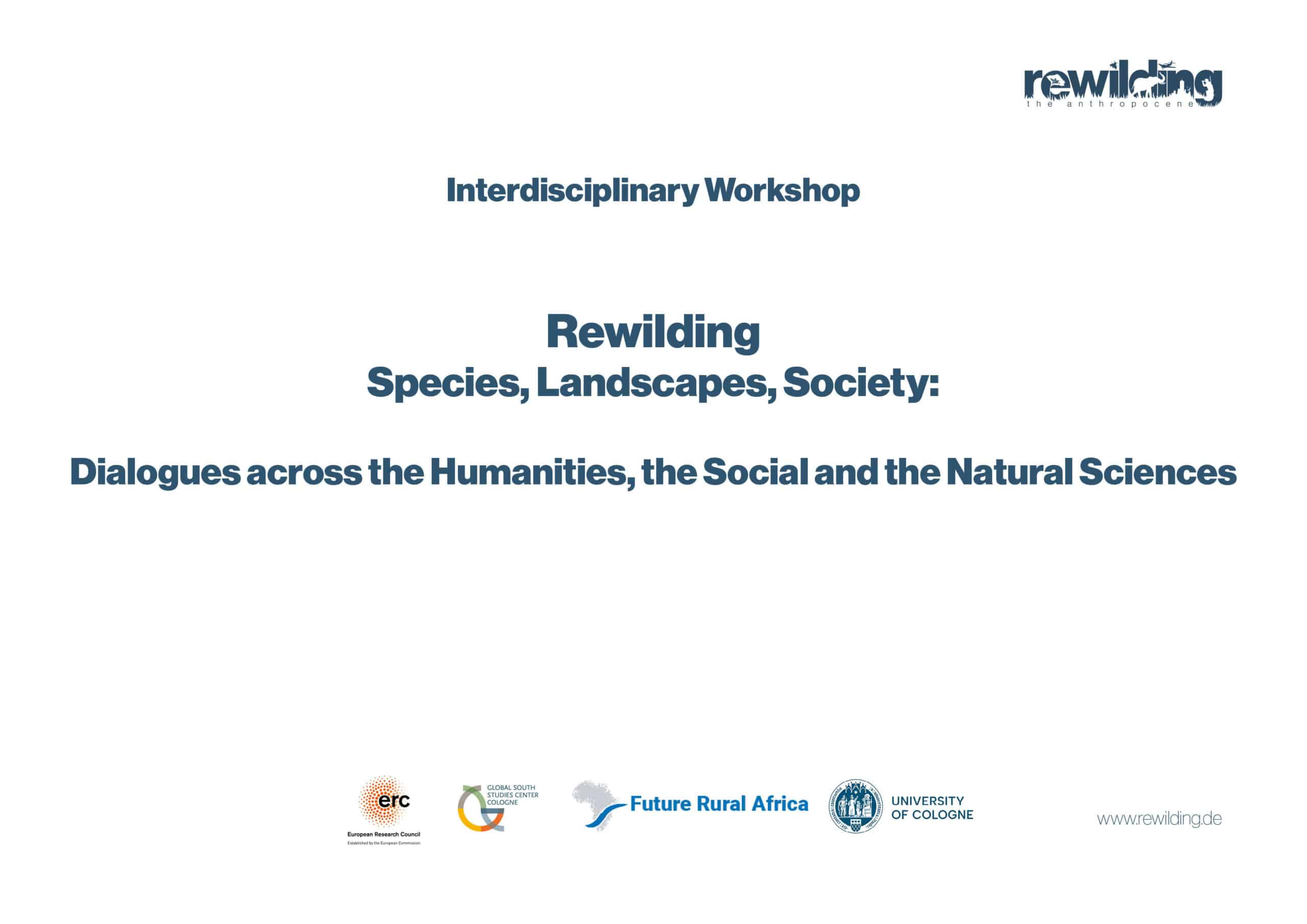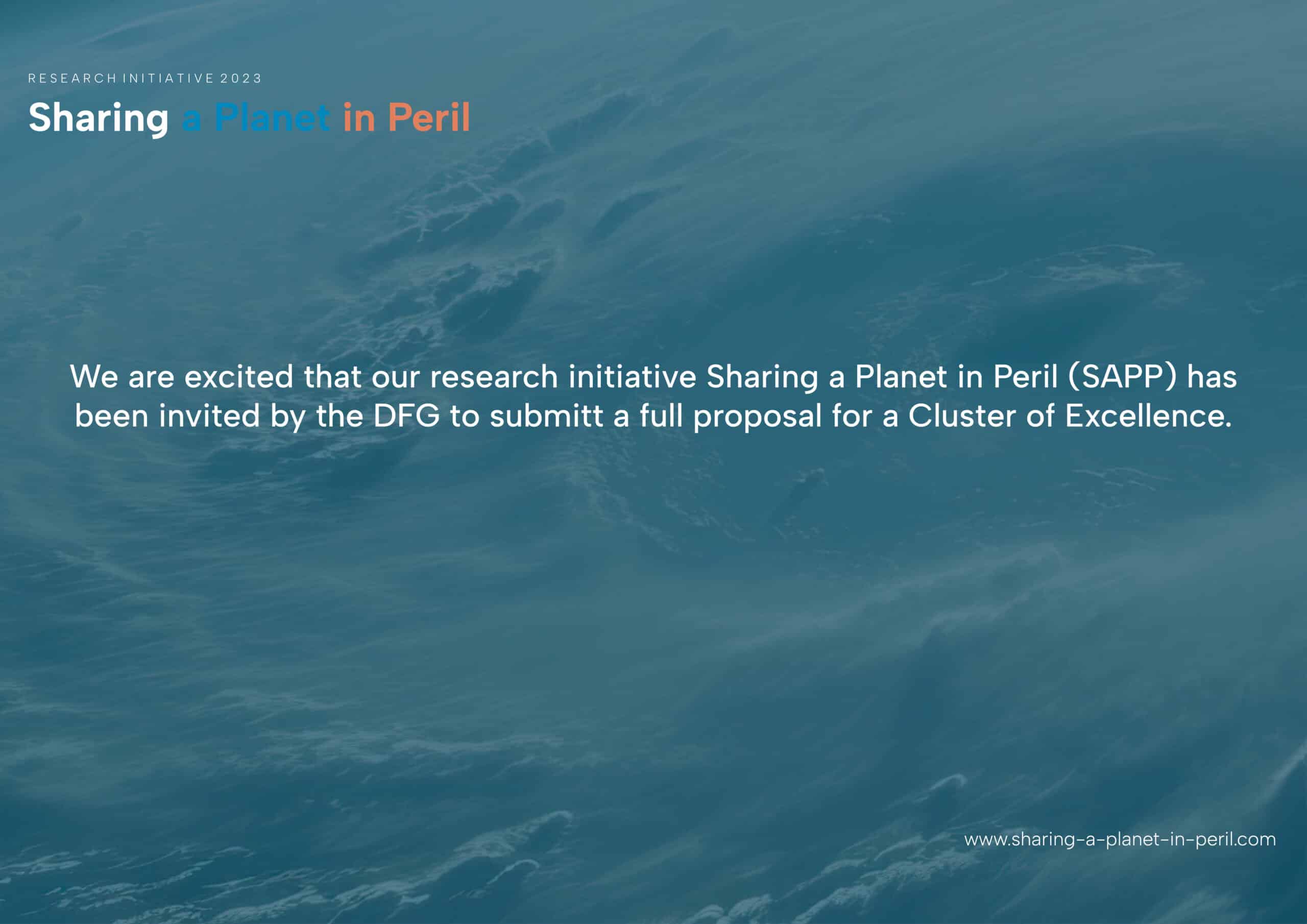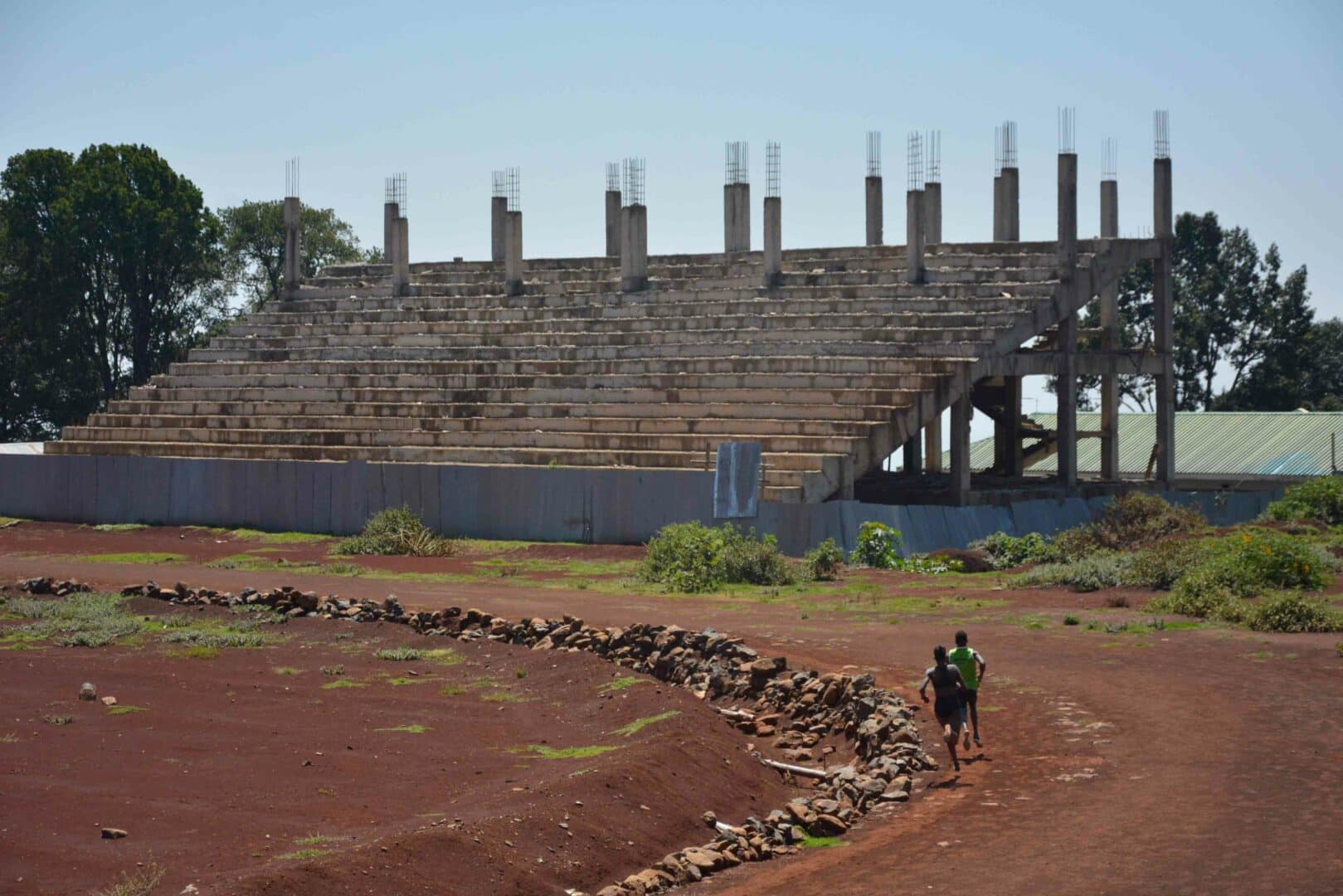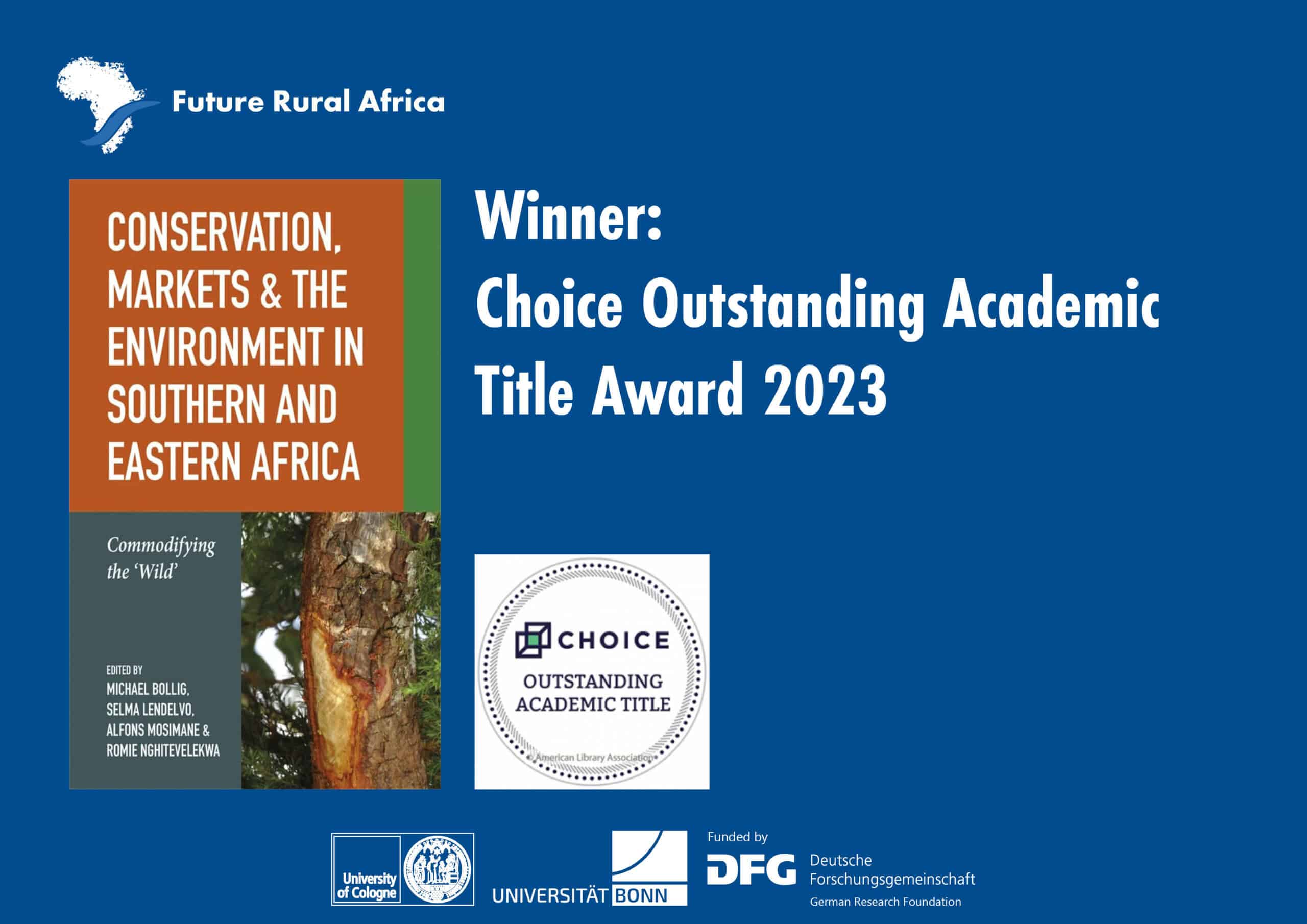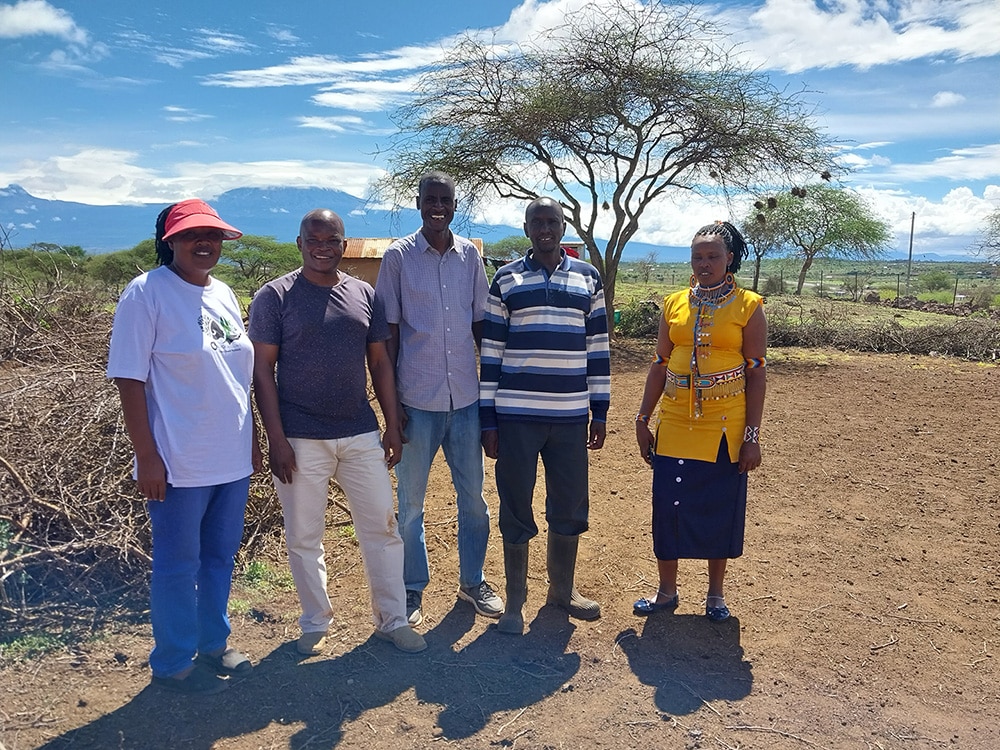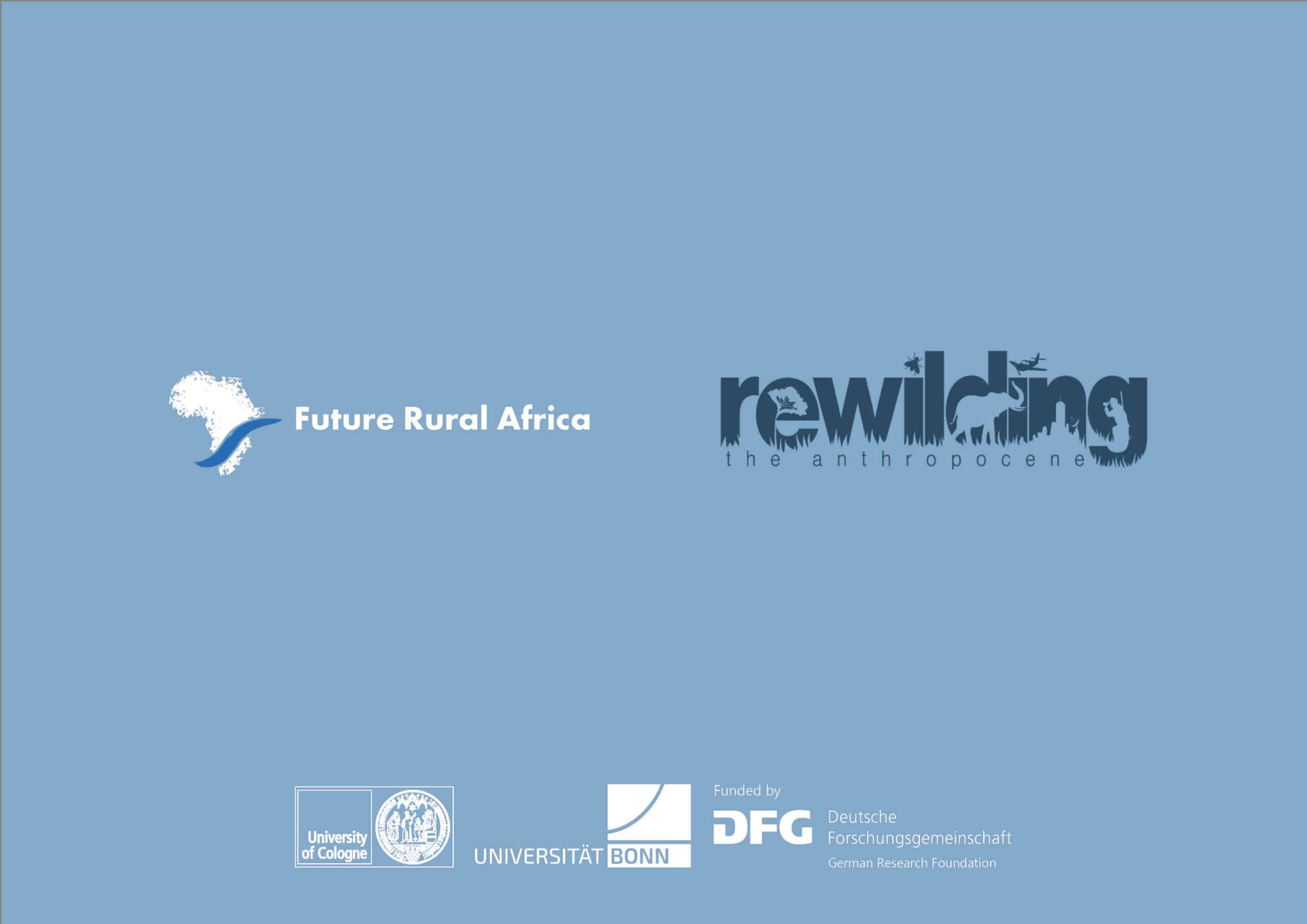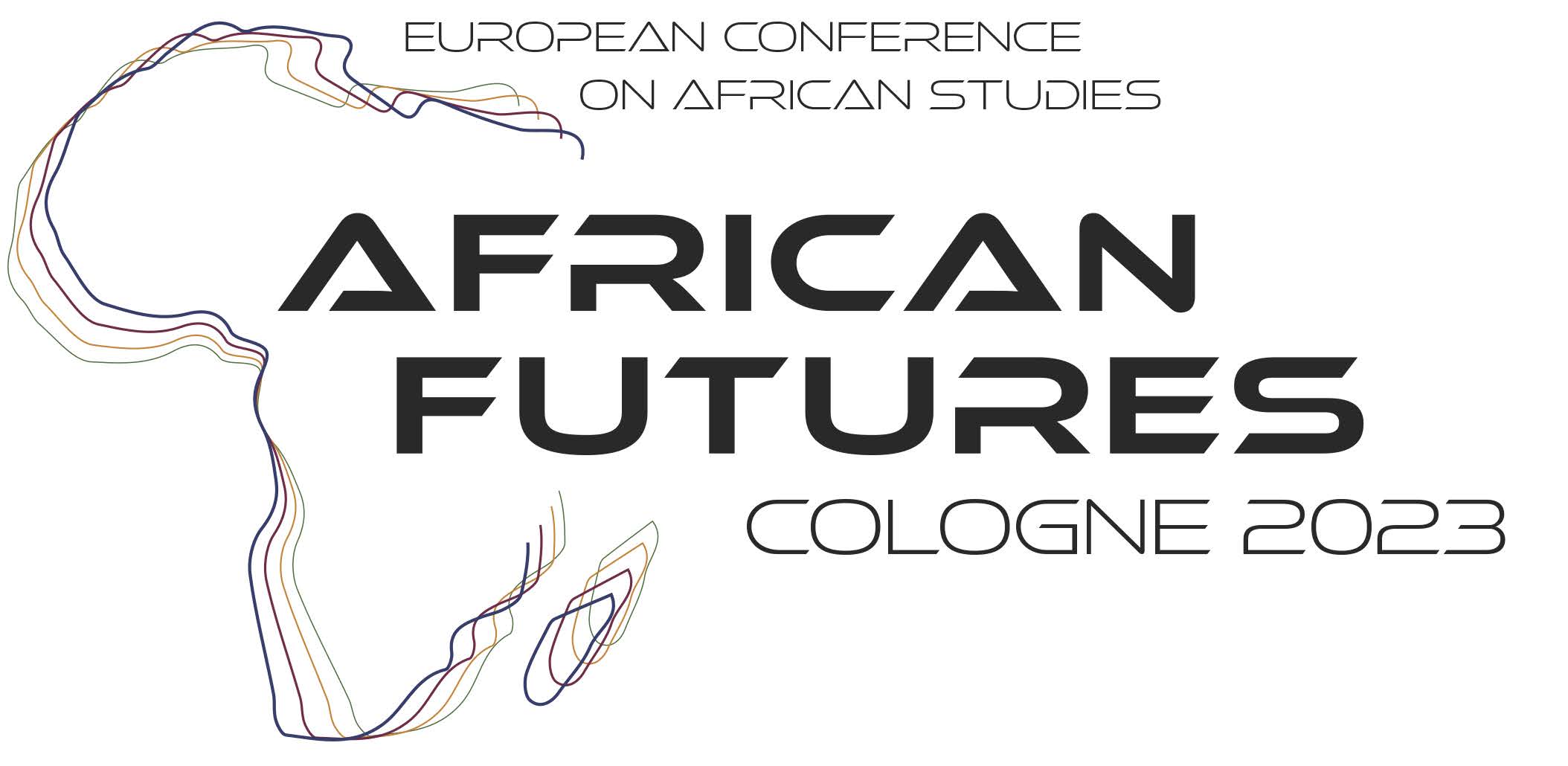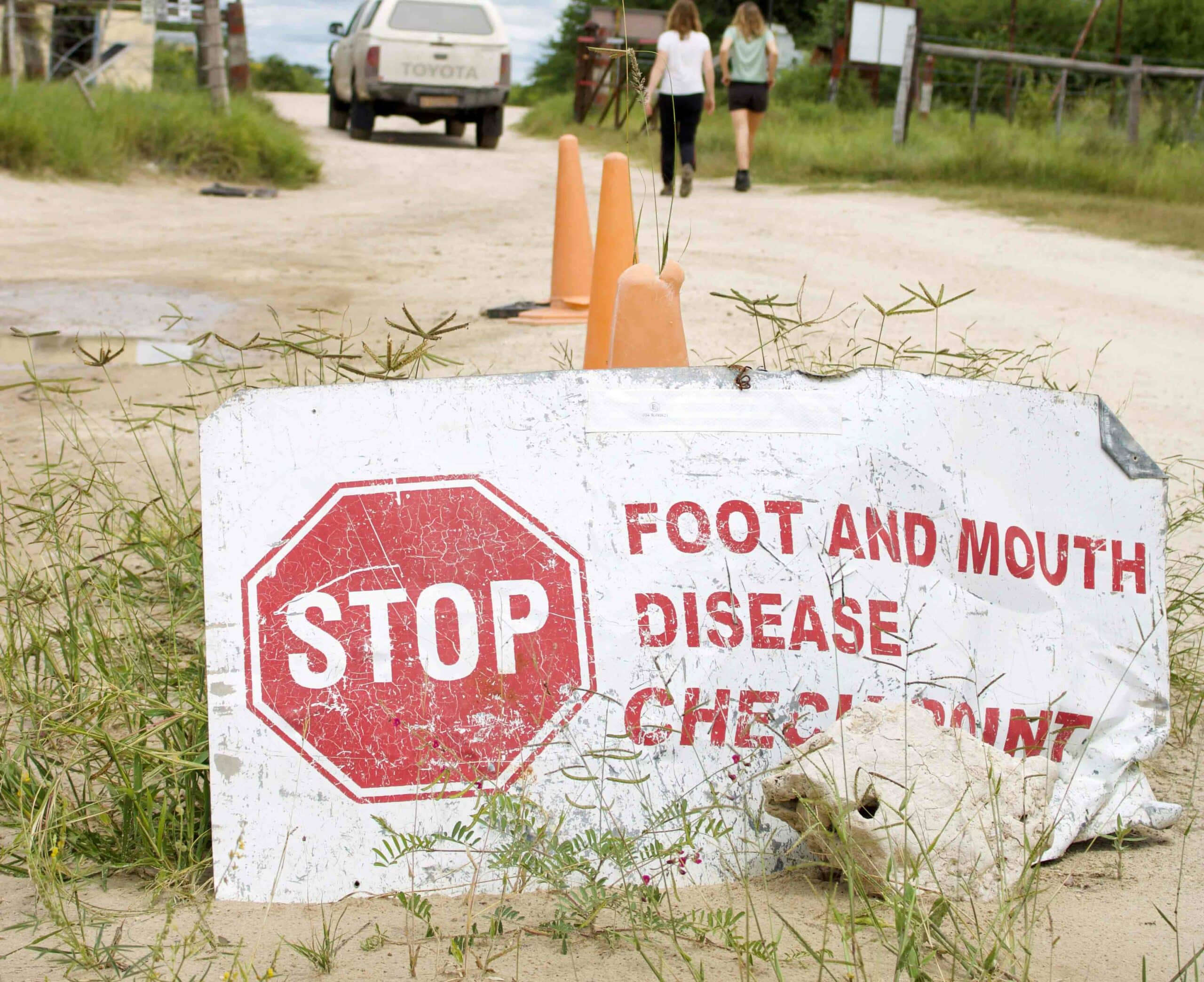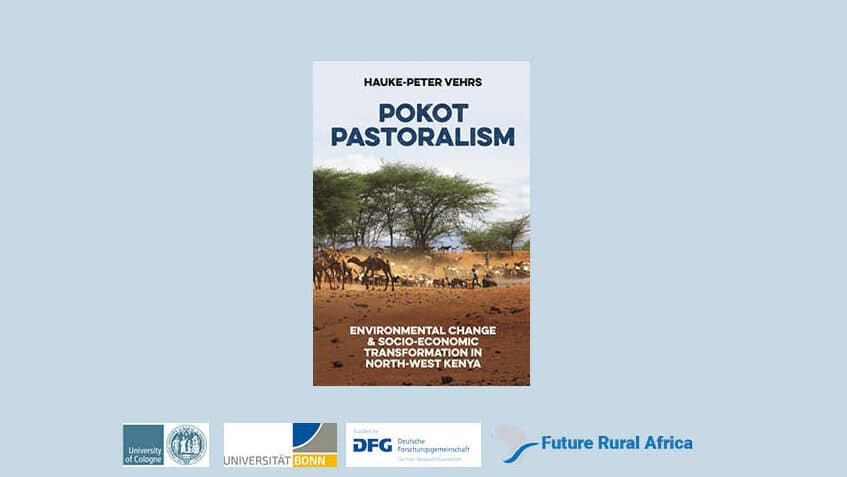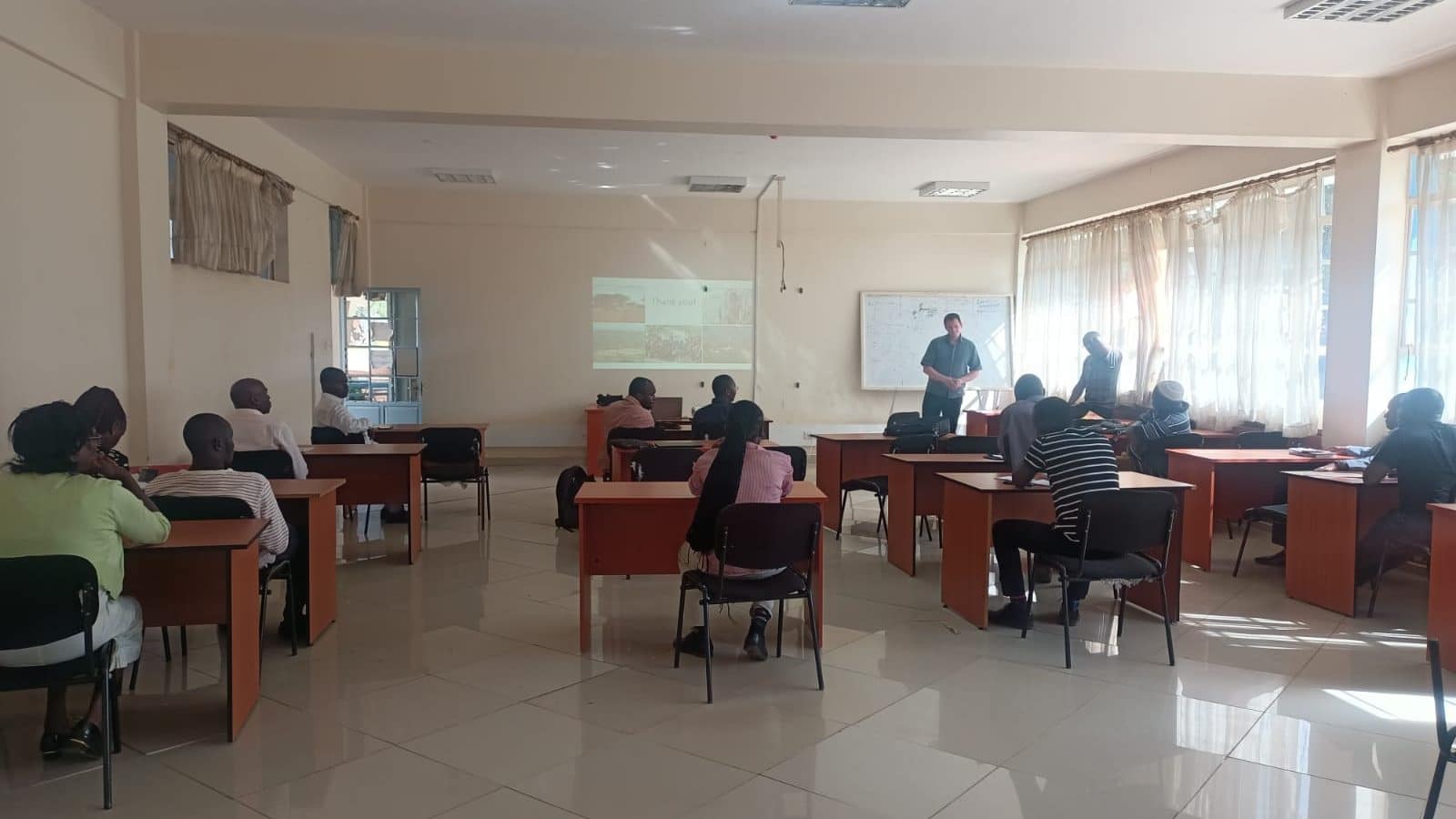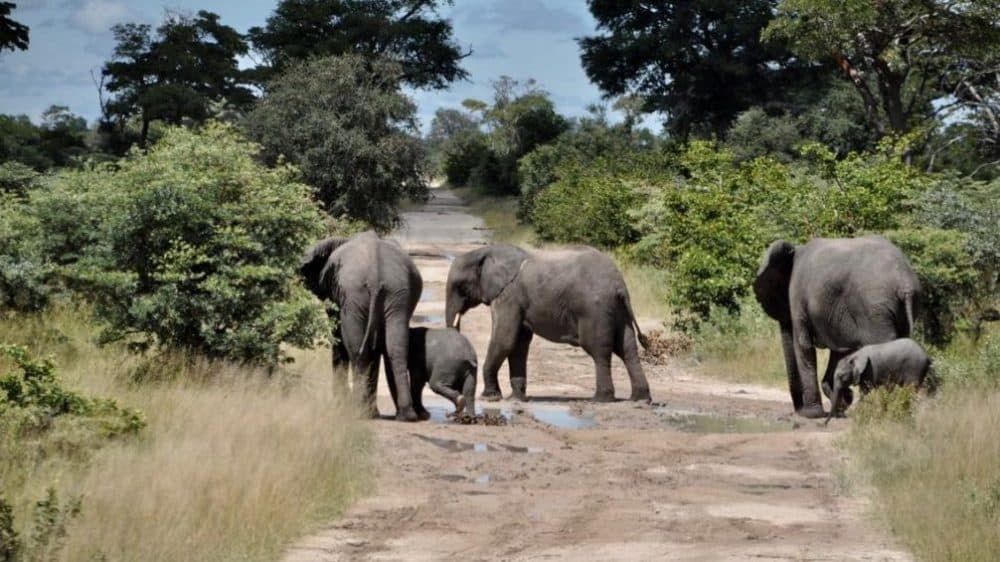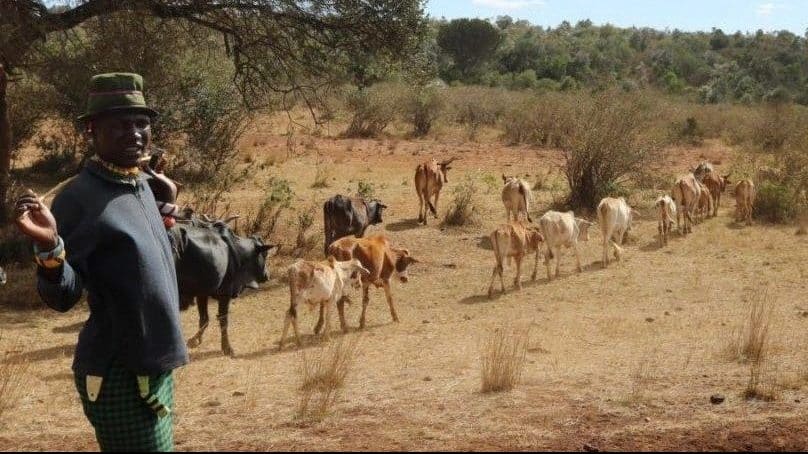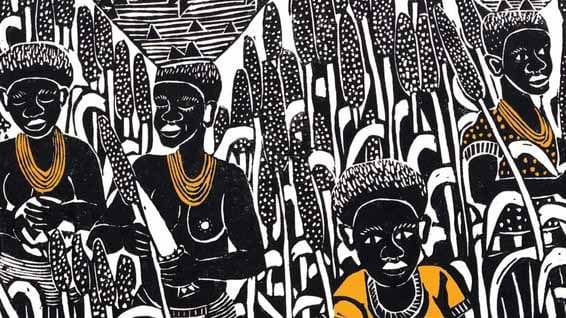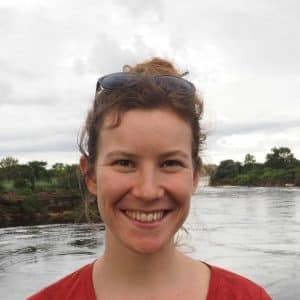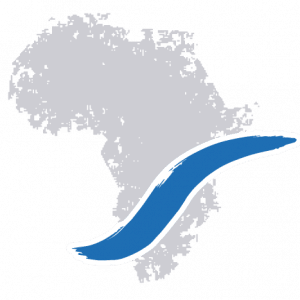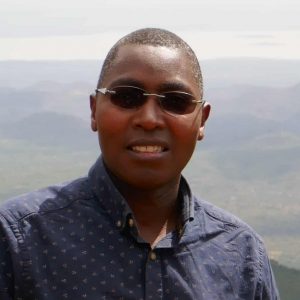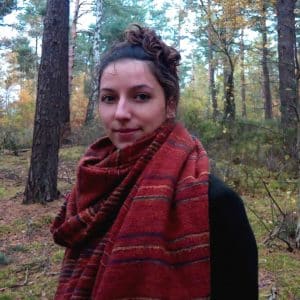CRC TRR 228 Project A04
Future Conservation
Towards an African Eden? Shifting bio-cultural frontiers and the (re)coupling of social-ecological relations in the conservation areas
A04 Future Conservation
Vision
We want to explore different manifestations of conservation and how conservation landscapes were designed and planned, as well as to understand what visions for the future are being formulated. We are particularly interested in ways that take the critique of existing approaches to conservation seriously and that explore new strategies of human and more than human coexistence.
Project Summary
Project A04 continues its work on practices of large-scale conservation in southern and eastern Africa. It will pursue research in both prior field sites (Namibia’s Zambezi Region and Kenya’s Baringo County) and widen its efforts in the KAZA transboundary conservation area including conservation areas in south-western Zambia. While the Namibian Zambezi Region is characterized by a declining significance of subsistence agriculture, increasing relevance of social transfers, continued significance of migrant labour, and a rapidly growing tourism sector, south-western Zambia’s population is highly dependent on agriculture, extractive resource exploitation (e.g. timber harvesting), and labour migration. In both settings, traditional authorities wield significant influence and conflict and cooperation between them, the government, and numerous NGOs shape environmental governance. In eastern Africa the project will concentrate on a large wetland conservation area, Lake Baringo and its savannah hinterlands (after successfully working on highland adjoining forest areas in the Lake Baringo catchment in the first phase). In contrast to the well-established conservation conditions of the KAZA conservation area, the situation in the Baringo region is highly fragmented. Lake Baringo itself has maintained a sizeable population of aquatic fauna, and the Lake Baringo wetland is of crucial significance for fishermen, and also for pastoralists and agro-pastoralists living along the lake and in its hinterlands, and eco-tourists visiting the lush savannah wetlands.
Research Regions: KAZA TFCA; Lake Baringo Area, Kenya
Problem Statement
Social-ecological transformation in southern and eastern Africa is increasingly shaped by different forms of conservation: national parks, transboundary conservation areas, community-based conservation and conservation on freehold farmland. This project focuses on the coupling of social, cultural and material dynamics in social-ecological systems under various regimes of conservation from the perspective of political ecology, neo-materialist as well as multi-species approaches.
Key Questions
- How and to what degree do households incur costs and benefits from conservation? How are such costs/benefits distributed within households and across communities?
- In what way do incomes from conservation spur rural inequality? To what extent are they an option for rural poor to diversify their livelihoods and gain more security?
- How are projects of conservation co-produced between local power brokers, national elites, governmental officers, and international actors?
- How is conservation linked to other processes, such as economic intensification, infrastructure development, rewilding, ecological invasions, or defaunation?
- What role do specific multispecies assemblages play in the planning and implementation of conservation projects and what insights can we, as anthropologists, gain by using the multispecies approach in the conservation context?
Methodology
Qualitative ethnographic methods; structured and semi-structured interviews; household surveys; cognitive methods; cultural mapping; participatory observation; essay writing.
Key Findings from Phase II
In Namibia, Zambia and Botswana, the colonial administrations were interested in maintaining wildlife stocks and eradicating infectious diseases (in both humans and livestock). The management of tsetse fly (Glossina morsitans) infestations became a key area of colonial scientific research and control, for instance in south-western Zambia.
We also researched the impact of drought on socio-cultural and economic processes, and addressed the dual challenge of drought and wildlife damage in communities living in the KAZA TFCA. We found a rural economy on the verge of collapse and high levels of vulnerability and poverty. The main challenge facing rural agricultural production is the increasing unreliability of rainfall, a problem that is further exacerbated by frequent wildlife damage.
We worked on changing rural livelihoods in various locations, including north-eastern Namibia, northern Zimbabwe and south-western Zambia. We found that communities in both Zimbabwe and Zambia did not benefit significantly from conservation. While there was hardly any tourism in Zambia and off-farm income was difficult to obtain, some hunting tourism took place in Zimbabwe but hardly yielded any benefits for locals. In both contexts, however, increasing wildlife numbers led to more human–wildlife conflict. In contrast, certain households in Namibia did benefit from tourism.
In contrast to Namibia and Botswana, where community-based conservation is a state-run programme, in Zambia traditional authorities slipped into this role and joined hands with international conservationist NGOs. After a decade, when hopes for economic benefits had not materialised and rural people were instead confronted with mounting wildlife damage and increasingly rigid wildlife protection rules, they turned against the programme and the traditional authorities who had introduced it. This conflict sparked numerous discussions and negotiations regarding rural democracy and the role of traditional authorities.
After finding that local people hold a vast amount of knowledge regarding, for instance, elephant behaviour, mobility, sensing and memory, we also inquired about this. The number of elephants has increased rapidly over the past few decades. They have adapted to the presence of humans in various ways: they have shifted their activity focus from diurnal to nocturnal, increased their walking speed when close to humans, and communicated information on harvestable fields. Many respondents believe that the damage elephants cause outweighs their value.
We also explored the fascination with hippos among white hunters and European travellers, and described how hunting practices evolved, putting significant pressure on hippo populations and other wildlife. This pressure resulted in strict hunting regulations that favoured trophy hunting over local subsistence hunting practices. The colonial developments presented also influenced the planning of protected areas, which continue to have a profound impact on the livelihoods of local communities.
In north-western Kenya, we explored the history of the local extinction of wildlife from the mid-19th century to the 1970s. Despite being a region renowned for its abundance and diversity of wildlife, herbivores and carnivores became locally extinct within a century due to hunting and the systematic extermination of ‘vermin’. Ivory hunters, early European explorers, European sports hunters, and the colonial administration played a key role in decimating the wildlife population. This massive intervention in the ecosystem had far-reaching impacts on the surrounding environment, including bush encroachment and ecological invasions, as well as on local livelihoods.
Key Findings from Phase I
The conservation landscape and its environmental infrastructure in north-eastern Namibia has been shaped by the impact of administrative measures and the gradual decoupling of humans and wildlife in a vast wetland. The path towards today’s conservation landscape was marked and marred by the enforced reordering of human-environment relations. In Kenya, colonial and postcolonial governmental projects of conservation and development transformed forest landscapes, and still continue shaping their ecologies, the lives of their inhabitants and forest-people relations.
(2) Beyond conservation, cattle husbandry in the Zambezi Region is a project of the local population, being an expression of wealth and as a means of saving. At the same time, cattle can be used in farming activities, produce milk and meat for consumption and sale, and fulfil important social functions (i.e. bridewealth payments or cattle loans). However, the needs and practices of expanding cattle husbandry often conflict with the demands and challenges of conservation and conservation-related tourism.
(3) The travelling idea of conservation (and CBNRM in particular) is often detached from the lives of conservancy members who are confronted with the repercussions of conservation, such as human wildlife conflicts or past displacements. For most conservancy members conservation is by far not as relevant as other livelihood strategies, which raises the question to what extent community-based conservation, as practiced today, is a viable future option for many smallholders in the conservancies.
(4) In Baringo, despite rights that allow residents to use public forests in certain ways, they often feel cut off from the benefits of forest exploitation. In turn, some subsistence practices in the forest conflict with governmental conservation goals, in a highly politicized context.
(5) Communities that were displaced in the designation and making of a conservation landscape in the Zambezi Region complain about, protest against and legally contest their estrangement from their former homes that now have become protected areas. They are often relegated to supply cheap manual labour or engage in ‘cultural’ events to well-paying tourists who visit their former ancestral land, a region that is now inhabited by large herds of wildlife and where little or nothing reminds visitors of earlier inhabitants. In Baringo, former forest dwellers are claiming justice for historical evictions from forest areas by colonial and post-independence governments for conservation and exploitation purposes. We argue that conservation of biodiversity can only be successful if issues of past and present environmental injustices are addressed comprehensively.
(6) In Baringo, despite formal dispossessions of forest areas, local populations continue living with the forests. Extensive ecological knowledge and practices of care bind residents to the forest and structure the local economic and social life.
(7) Intimate relations between people and natural environments are determining in the negotiation of future conservation and livelihoods. In Baringo, Kenya, forest histories are reappropriated in political claims. In these struggles, the role of traditional authorities regains significance and cultural identities are being reframed.
Relation to the CRC
Project A04 is the only project that directly focusses on the political ecology of various conservation measures as major trajectories of future-making in rural Africa. A04 aims to contribute relevant data on social-ecological coupling for all other projects engaged in research in the southern African KAZA area and the Kenyan Baringo area.
Our project is strongly linked to the ERC Rewilding (www.rewilding.de) that is conducting research on a variety of multispecies assemblages in the KAZA TFCA in southern Africa.
Publications
Alexiou, P., Brekl, J., Köhler, E., & van Engelen, W. 2024. Performing multispecies studies in Southern Africa: historical legacies, marginalised subjects, reflexive positionalities. Anthropology Southern Africa, 47(2), 254–267. DOI
Basukala, A.K., Vehrs, H.P., Bollig, M., Greiner, C., Thonfeld, F. 2019. Spatial-temporal analysis of land-use and land-cover change in East Pokot, Kenya. Documentation, ZFL, Bonn, Germany. DOI: 10.5880/TRR228DB.2
Basukala, A.K., Vehrs, H.P., Bollig, M., Greiner, C., Thonfeld, F. 2019. Dataset: Spatial-temporal analysis of land-use and land-cover change in East Pokot, Kenya. CRC/TRR228 Database (TRR228DB). DOI: 10.5880/TRR228DB.1
Biber-Freudenberger, L., Bogner, C., Bareth, G., Bollig, M., Dannenberg, P., Revilla Diez, J., Greiner, C., Mtweve, P. J., Klagge, B., Kramm, T., Müller-Mahn, D., Moseti, V., Nyamari, N., Ochuodho, D. O., Kuntashula, E., Theodory, T., Thorn, J., Börner, J. 2025. Impacts of road development in sub-Saharan Africa: A call for holistic perspectives in research and policy. iScience, Volume 28, Issue 2. DOI
Bollig, M. 2024. Wildlife corridors in a Southern African conservation landscape: the political ecology of multispecies mobilities along the arteries of anthropogenic conservation. Anthropology Southern Africa, 47(2), 216–235. DOI
Bollig, M. 2021. Future Conservation in Africa: Conserving what, and for whom, and how to do it? In: Greiner, C., van Wolputte S., & Bollig, M. (eds), African Futures. ECAS 9. 2021. Leiden. Brill.
Bollig, M. 2021. Materiality, inequality, and future‐making as focal points of future engagement of economic anthropology with climate change. Economic Anthropology 8:180-182. (Contribution to the Forum “What does economic anthropology contribute to the understanding of climate change?). DOI
Bollig, M. 2020. Shaping the African Savannah: From Capitalist Frontier to Arid Eden in Namibia. Cambridge University Press. Link
Bollig, M. 2019. The Anxieties, Thrills, and Gains of Rarity and Extinction: From Discourses on Remnant Fauna to the Globalized Protection and Marketing of Endangered Wildlife in Namibia’s “Arid Eden”. In S. Gänger & Bollig, M. (eds). Forum: Commodifying the “Wild”: Anxiety, Ecology and Authenticity in the Late Modern Era. Environmental History 24 (4). Link
Bollig, M. 2018. Themenheft “Naturschutz – Teilhabe und Konflikte.” Geographische Rundschau 70 (12), darin: Naturschutz und Naturschutzgebiete weltweit: Chancen und Herausforderungen” (p.4-9) und “Gemeinschaftsbasierter Wildschutz in Nord-Namibia” (p.30-37).Link
Bollig, M. 2018. Afterword: Anthropology, Climate Change and Social-Ecological Transformations. Sociologus 68:85-94. Link
Bollig, M., Mosimane, A., Nghitevelekwa, R., Lendelvo, S. 2023. Conservation, Markets & the Environment in Southern and Eastern Africa, Commodifying the ‘Wild’. Boydell & Brewer, Woodbridge. Full Text.
Bollig, M., Vehrs, H.P. 2021. The Making of a Conservation Landscape: The Emergence of a Conservationist Environmental Infrastructure Along the Kwando River in Namibia’s Zambezi Region. In: Africa. 91. No. 2: 270-95. DOI
Bollig, M., Vehrs, H.P. 2020. Abundant herds: accumulation, herd management and land-use patterns in a conservation area. Pastoralism: Research, Policy and Practice. Vol 10. Link
Casimir, M., Vehrs H.P. 2019. Commenting on the article: Comparative Study of Pastoral Property Regimes in Africa Offers No Support for Economic Defensibility Model, published by Moritz, M., Gardiner, E., Hubbe, M. und A. Johnson. In: Current Anthropology. 60(5): 609-36.
Greiner, C., Vehrs, H.P., Bollig, M. 2021. ‘Land-use and Land-cover Changes in Pastoral Drylands: Long-term Dynamics, Economic Change, and Shifting Socioecological Frontiers in Baringo, Kenya’, Human Ecology. DOI
Kalvelage, L., Bollig, M., Grawert, E., Hulke, C., Meyer, M., Mkutu, K., Müller-Koné, M., Revilla Diez, J. 2021. ‘Territorialising Conservation: Community-based Approaches in Kenya and Namibia’, Conservation and Society. Access Link
Kalvelage, L., Revilla Diez, J., Bollig, M. 2023. Valuing Nature in Global Production Networks: Hunting Tourism and the Weight of History in Zambezi, Namibia. Annals of the American Association of Geographers. DOI
Köhler, E., Bollig, M. 2025. Elephant corridors in the Kavango-Zambezi transfrontier conservation area (KAZA TFCA): environmental infrastructures for a greener anthropocene in Namibia’s Mudumu landscape. Review of Regional Research. DOI
Kuiper, G., Kioko, E., & Bollig, M. (eds.) 2024. Agricultural Intensification, Environmental Conservation, Conflict and Co-Existence at Lake Naivasha, Kenya. Leiden: Brill. Link
Lacan, L. 2024. Killing tsetse and/or saving wildlife? A multispecies assemblage in colonial Zambia (1895–1959). Anthropology Southern Africa, 47(2), 133–151. DOI
Lacan, L. 2024. Forest Politics in Kenya’s Tugen Hills. Conservation Beyond Natural Resources in the Katimok Forest. Boydell & Brewer, Woodbridge. Link
Lacan, L. 2023. In the ruins of past forest lives: remembering, belonging and claiming in Katimok, highland rural Kenya, Journal of Eastern African Studies, DOI
Lacan, L., Alexiou, P., Brekl, J., Köhler, E., van Engelen, W., Vehrs, H.P., Bollig, M. 2024. The assemblage: A Framework for Anthropological Research in Multispecies Studies. Sociologus, Vo. 72 (2) (2022), 93-113 DOI
Lacan, L., Vehrs, H. P., & Bollig, M. 2024. Introduction: Multispecies encounters in conservation landscapes in Southern Africa. Anthropology Southern Africa, 47(2), 109–117. DOI
Mlilo, M., Bollig, M., Revilla Diez, J. 2024. Coloniality of power and the imaginaries of tourism in Victoria Falls, Geoforum, Volume 156, 2024. DOI
Mlilo, M., Bollig, M., Revilla Diez, J. 2024. Nation-state influence on tourism path creation in Southern Africa. Regional Studies, 1–16. DOI
Mosimane, A., Matengu, K. & Bollig, M. Traditional authorities, conservation and commodification of the wild: a Namibian perspective. A Namibian perspective. In: Bollig, M., Mosimane, A. W., Nghitevelekwa, R., Lendelvo, S. (eds.), Conservation, Markets & the Environment in Southern and Eastern Africa Commodifying the ‘Wild’. 2023. Suffolk. James Currey.
Nghitevelekwa, R., Lendelvo, S., Nakanyete, F. N., Likuwa, K., Matengu, K., & Mushavanga, D. 2024. “We have that connection, we have love; we take wildlife as gifts from our ancestors”: relations between antelopes and Khwe in Namibia’s Bwabwata National Park. Anthropology Southern Africa, 47(2), 183–196. DOI
Van Dam, A., van Engelen, W., Müller-Mahn, D., Agha, S., Junglen, S., Borgemeister, C., & Bollig, M. (2023). Complexities of multispecies coexistence: Animal diseases and diverging modes of ordering at the wildlife–livestock interface in Southern Africa. Environment and Planning E: Nature and Space, 0(0). Full Text
Vehrs, H. P. 2024. Hunting the hippo: a brief history of wildlife hunting and the reconfiguration of animal-human relations in Namibia’s Zambezi region. Anthropology Southern Africa, 47(2), 152–166. DOI
Vehrs, H.P. 2022. ‘Pokot Pastoralism: Environmental Change and Socio-Economic Transformation in North-West Kenya’, James Currey, Future Rural Africa Series. Access Link
Vehrs, H.P., Kalvelage, L., Nghitevelekwa, R. 2022. ‘The Power of Dissonance: Inconsistent Relations Between Travelling Ideas And Local Realities in Community Conservation in Namibia’s Zambezi Region‘, Conservation & Society, [Epub ahead of print], Link to preprint
Vehrs, H. P., Lacan, L., & Bollig, M. 2024. Conclusion: Situating multispecies relations in Southern Africa in their local historical and political contexts. Anthropology Southern Africa, 47(2), 268–273. DOI
Vehrs, H.-P., Zickel, M., 2023. Can environmental injustices be addressed in conservation? Settlement history and conservation-induced displacement in the case of Lyanshulu in the Zambezi Region, Namibia. Human Ecology (2023) Full Text

